Episode 44: Board Meetings | Top 2 Plateau Breakers
The gang's all here, again! Our 2nd OFFICIAL full team Board Meeting. Episode 33, Our Top 2 Sources of Information, was the first. If you haven't listened to that one... GO DO IT!
In this episode, Nate, Paul, Blake, and I discuss the Top 2 ways we break through plateaus. Whether it's mental or physical, unless you're a mutant, you've gotten stuck. That upward trajectory has slowed to a grinding halt, and you don't know what to do. Well, we have some advice.
BIG NEWS!
The Patron-only podcast, "We Scream Like Eagles" is now alive! For as little as $1 per month, you can get an extra episode or two each month. We like to talk, learn, and laugh. You like to listen, learn, and laugh along with us. It's a match made in podcast heaven. So click on the linked image below to become a Patron. Our first episode is a conversation with my fiancée Annalissa and Arno Ilgner about how his advice in Episode 17 helped her have the best season of her life.
Share us with your friends, your enemies, your mom, your dad, and your grandparents. And your social medias. But remember:
We don't tweet. We scream like eagles.
Like what you hear? Subscribe to The Power Company Podcast on ITunes, Google Play, or Stitcher Radio, and leave a rating and review!
FULL EPISODE TRANSCRIPT:
Kris Hampton 00:01
Hey everybody, Kris here. Just a quick note to let you guys know that, you know, this episode was recorded back in December of 2016, right around Christmas. And it's a Board Meeting with all four of us, with Paul and Blake and Nate and myself. And at the time, we only had a setup for two microphones. So the sound isn't what I normally expect out of this podcast. And I had actually considered not putting it out because it was going to take so much editing to put it together, and to get it to sound anywhere close to where I wanted it. But on a poll on our Facebook community page, everyone demanded that we put out this Board Meeting. So here you guys go. And thanks to your patronage, we have since upgraded to a setup that will accept four and up to six mics, actually the same setup that Tim Ferriss uses. And that happens because you guys support the podcast. So thank you very much. And enjoy the episode.
Kris Hampton 01:37
What's up, everybody? I'm your host, Kris Hampton.
Blake Cash 01:41
I'm Blake Cash.
Paul Corsaro 01:42
And I'm Paul Corsaro.
Nate Drolet 01:44
And I'm Nathan Drolet.
Kris Hampton 01:45
And the whole crew is here again. It's like an actual board meeting. Because we're all here, Board Meeting in session. What are we going to talk about? Top three, how are we going to word this? We're calling it, we're doing top two actually. You're not getting me again.
Nate Drolet 02:00
Boom
Kris Hampton 02:01
Yeah.
Nate Drolet 02:02
Plateau breakers
Kris Hampton 02:03
Top two plateau breakers. I like that I had "busters" written down. But it sounds way 1980s hip hop. So we're gonna go with "breakers". I like that. Top two plateau breakers. So we've all been there, we've all been stuck. How do you get out of that? I think that's one of the big quandaries in climbing training. So we're gonna tell you how, and these are the only eight ways to do it. There are no other ways, period. So let's get started, we started with Blake last time. Let's start with Paul.
Paul Corsaro 02:36
Alright, so the first one I've found some success with is I was gonna call it a moderate weakness period, but I decided to call it a successful weakness period, because I like that little bit more positive spin to it. And you know, if you're gonna plateau, you're probably feeling pretty negative as it is. So yeah, let's, you know, put a positive mindset on things because honestly, that's important too. But anyway, so what I like to do is I'll go out and climb significantly below my level. And for the most part, recently, majority of boulders, I'll use V grades for simplicity's sake, but I'm saying you know, I'm struggling on whatever I'm working on. And I'll go way below my level on a style of climbing that I am not good at. So anything less than vertical, technical, not a lot of holds I can grab or holds I can squeeze because I like to compression climb. I'll go out and session a bunch a bunch of days out, you know, three, four, even five number grades below my limit. And you know, just you learn subtleties of movement that you can take forward into some of your harder pursuits. And also, you know, it kind of helps remind you that climbing is fun. We do this because it's fun. We don't do this because we hate ourselves. We don't do this because we want to have a bad day at the end of the day because we didn't send our project. Like we're outside in a beautiful area, we're with friends, weather's nice. I mean, climbing is awesome. And it's good to be reminded of that from time to time, and subtle lessons you can take forward. So yep, successful weakness period.
Kris Hampton 04:05
Yeah, I think it's funny too, that you know, that might be our weakness, but, and we all kind of equate that with I'm not going to have a good time. Yeah, cuz it's what I'm bad at. But definitely some of the most fun sessions I've ever had are just playing on these low rated odd boulders of you know, some weird thing that I'm not very good at. It's so much fun.
Paul Corsaro 04:28
A friend of mine has like her favorite zero star day, where she'll go out
Nate Drolet 04:31
Zero Star Sunday.
Paul Corsaro 04:32
Yeah, you've heard of it.
Nate Drolet 04:33
Yeah I celebrate this every week.
Kris Hampton 04:39
Is this Ann we're talking about?
Paul Corsaro 04:41
No it's Margaret Schneider.
Kris Hampton 04:43
Oh, Margaret does it.
Paul Corsaro 04:44
She and Anna would go out and do that.
Kris Hampton 04:49
Cool. I thought maybe you were talking about Anne Holmes because she makes up crazy little mantles that are super fun all over the boulderfield.
Paul Corsaro 04:57
I have not yet been able to climb with Anne outside. We climb in the same gym, TBA, but I haven't been able to climb with her outside yet. I've seen her in passing, but we haven't spent time at the same problem set yet.
Kris Hampton 05:07
Cool.
Paul Corsaro 05:08
But yeah, so like you said, going out climbing
Kris Hampton 05:11
Yeah it's so much fun.
Paul Corsaro 05:13
Climbing is fun
Kris Hampton 05:13
It's fun just throwing yourself around on something silly. Yeah, you know
Blake Cash 05:16
Sucking is fun.
Kris Hampton 05:18
It really is. Oddly, yeah, I wouldn't have thought so.
Nate Drolet 05:21
I mean, also when it comes down to it, it's more of all the boulders, which is I mean, that's the goal in the end, to do all the boulders
Kris Hampton 05:26
Except for when they are roof crack boulders
Nate Drolet 05:28
Those aren't boulders. Vedauwoo is not boulders.
Kris Hampton 05:35
It was fun. Don't deny it.
Nate Drolet 05:36
I mean, like, kind of on that sort of on a similar schema to that, like when I was on my first season guiding in Hueco Tanks, me and a bunch of buddies, we decided, yeah, we were on the All The Boulders Plan, the ATB Plan. So every day, we had to climb five new boulders, which means like, a lot of times, you know, the new V0s, 1, 2, 3s, whatever. But like, man, we were all in Hueco for like almost three months like so by the end
Kris Hampton 06:05
That's a lot of new boulders.
Nate Drolet 06:06
Yeah, we had done a ton. And like we were like, we're all guides, so we were in the back country. I mean, I think I was in the I was in the back country every day of January that year, because I was either guiding or climbing or both.
Kris Hampton 06:18
But let me ask you this. If If you only log V7 and up on your 8a, then what could possibly convince you to climb V1?
Nate Drolet 06:30
All The Boulders. That's the only answer I can give you.
Kris Hampton 06:35
Yeah, yeah, that's a good answer.
06:36
But yeah, no, and it's fun gee because we started just, I mean, yeah, you realize there's a lot of great like one and two star climbs and even zero star climbs. You're like, no one ever did this, but it's actually like kind of cool. But yeah, like, it was so fun. Because every day was kind of a victory. And eventually you were just like, sending your five boulders with like, kind of harder. They were really cool. You're like, Oh, that was really fun. Like, I never would have done that otherwise. And yeah, when you walk away from it, it's like even like, it's funny that season for me, I was climbing with a guy who's a bit stronger than me. And I just love rallying with a strong crew like, to me that's one of the funnest things ever. So he would send something, I'd give it a few more tries and be like, oh, let's just move on to like whatever else. So I like sent almost nothing that season minus like the ATB boulders. But that was like, as far as growth goes, like that was one of my biggest seasons, like just from climbing with someone better than me and yeah, just like doing what Paul said, just logging a ton of mileage on everything.
Kris Hampton 07:35
Yeah and you're getting a bunch of momentum you can carry over, you know, from that. And even in even in a single day, I think that momentum is important. You know, if you go out and just try some things you maybe normally wouldn't try, just to build some momentum, then it can carry over into the rest of your day or the rest of your season or the rest of your climbing career. Who knows, you know, if you do it enough to keep that momentum rolling.
Nate Drolet 07:59
Do any of y'all have methods or maybe superstitions that you use to kind of build momentum for the day? I do.
Kris Hampton 08:08
It's funny. It's funny that you asked that because just the other day, like I'd been struggling on Golden Harvest for a couple of days, not really feeling like I was making any progress on the one really hard move. And I I had been walking past the Big Bad boulder, which is one of my favorite boulders on Earth. I just think the Big Bad boulder itself, the problem, the V6
Nate Drolet 08:32
Awww it's so good.
Paul Corsaro 08:33
It's a good problem.
Nate Drolet 08:34
V6 doesn't get much better.
Kris Hampton 08:35
I know. I've always loved that boulder, but I hadn't stopped.
Paul Corsaro 08:38
I heard it's V3 now
Nate Drolet 08:39
That's probably right
Kris Hampton 08:40
It's whatever. It's it's V...what was that? ATB. Yeah, that's a tough one to come up with.
Blake Cash 08:48
Maybe the coolest finish hold.
Kris Hampton 08:49
VATB. Oh, man, it's so good. But I stopped and I climbed it like five times, just for the fun of it. So good. Just tried to make it better, treat it like a perfect repeat problem in one of our plans, you know. And then when I went down to Golden Harvest, I was climbing so much better. My warm ups had started kind of meh and so I was feeling like oh god today's gonna suck. By the time I left the Big Bad boulder, I felt so good. And it was the best session I had on Golden Harvest. So when I go back tomorrow, I'm definitely doing Big Bad about five times before I go down to Golden Harvest.
Paul Corsaro 09:27
It comes down to the fact like climbing is fun. We do this because we enjoy it. We're not masochists here. It's a fun sport.
Kris Hampton 09:37
Yep. And like Nate said, superstitions, you know, once I found that it worked, I'm gonna do it again. Yeah,
Nate Drolet 09:44
I have to top out the first boulder that I climb on every day.
Kris Hampton 09:47
Really?
Nate Drolet 09:48
Yeah, I have to get to the top.
Kris Hampton 09:49
That's funny. I don't I don't top out for like the first hour probably.
Nate Drolet 09:53
Heretic. Yeah, like you have to get on top of a boulder, like that's how your day starts.
Kris Hampton 09:58
And I purposely don't start on the start holds for a lot of my warmups.
Paul Corsaro 10:02
Oh no, it depends
Kris Hampton 10:03
So it doesn't even count as a problem.
Nate Drolet 10:04
It depends. If you've already done the boulder once, then all's on. Trees are on, you can stem to other boulders
Paul Corsaro 10:11
You can walk around the back.
Nate Drolet 10:12
Oh yeah, it's whatever.
Paul Corsaro 10:13
You can't move backwards, god forbid.
Blake Cash 10:14
You have to be on top of a boulder.
Kris Hampton 10:16
You just throw your chalk ball at it and call it done.
Nate Drolet 10:19
Haha yeah.
Kris Hampton 10:23
Any superstitions for you? Anything you do that you make your day go better?
Nate Drolet 10:30
It can be sport climbing, too.
Blake Cash 10:32
I know. I know. If the opportunity allows, I generally always like to try and do one new warm up pitch, something new always in my day.
Nate Drolet 10:43
I think that is a good way to go.
Kris Hampton 10:45
It is. It's tough when your home area is little.
Blake Cash 10:48
Yeah, it is it is. But like oftentimes, if I can, if it's there and possible, I always try a new pitch. Even if it's a zero star route. If I can do new moves in a day, generally, it sets me off on a good.
Kris Hampton 11:02
Cool.
Blake Cash 11:03
Even if it takes like two goes to do it. You know, just to like, do a new route. There we go.
Kris Hampton 11:09
Do you do the same thing with strength training, Paul? Like if you're hitting a plateau in your strength training, do you kind of step it back down and just run through the same like good feeling moderate stuff?
Paul Corsaro 11:21
So what I'll usually do is I'll set a timer and go through the same kind of progression I'd do, if I was, you know, working for a heavier lift or something like that. But I'll do, try and just do as many good reps and however many times with the way more moderate weight. And just, you know, just move and just feel good moving and do that. So yeah, in a way I do. Which is probably why that transferred over to how I approach a climbing plateau. Because the mindset is very similar.
Kris Hampton 11:49
Yeah. Cool. Nate, I believe you are next.
Nate Drolet 11:53
All right. My first one is bringing it back to the basics. So and for me, this specifically goes towards movement. So if I feel like I'm stagnating, then I'll focus on something I think I'm bad at or just something that, yeah, I just look at like, Okay, what is the foundation of what I'm trying to get better at. Like this could be, sometimes breathing, mostly, it's something along the lines of like, I'm gonna try and like, I want to get better at backstepping or twisting. Like, for me, backstepping has been a big one for years. And so I might even pull back, like, with my strength training, like all my pulling motions for the next like month might just be one arm rows, or two arm rows, or different rowing variations, and really try and focus on the form, and really trying to dial that in. And when I climb, I'm not just trying to like do hard boulders, I'm trying to use that exact same perfect form.
Kris Hampton 12:53
Right. And I've noticed you do that, like I've seen you go through those motions. And we've talked about it a fair amount on our workshop tour this summer, that you were really focused on one arm rows and and really working on the form of it, which I thought was pretty cool, because I know some guys who have backstepping issues. And, you know, it's funny that you bring that up because the guy I'm thinking about, and you know you are, doing one arm rows was doing them super, super sloppy. And as soon as I was like, do them this way, he was like, Oh, that's really hard.
Nate Drolet 13:30
Can't I just twist?
Kris Hampton 13:31
Right. Exactly.
Nate Drolet 13:32
Yeah, I can, I can do it a lot easier when I twist.
Kris Hampton 13:35
Yes. Thinking about the form of the really basic movement. I think that's really important.
Nate Drolet 13:39
Yeah. And for anyone who wants to know, like, there's a great video that Eric Cressey put out called "Eight Ways To Screw Up A Row". And he does a phenomenal job of explaining different roughly eight different ways that you can mess up a row. And he breaks down the form tremendously. And he uses a cable tower to do it. But you can use gymnastics rings, cable tower, you know, shoot, you can even use it like on a vert wall and just practice rowing.
Kris Hampton 14:04
Right.
Nate Drolet 14:04
But it's for me, it's been really great. So you know, I practice
Kris Hampton 14:07
Which I've seen you do.
Nate Drolet 14:08
Yeah, no, I do have this part of my warmup now. Like, I'll go to a vert wall, and I just practice rowing on a hold
Kris Hampton 14:13
Yeah, and the only reason I point that out is because you've climbed V12, but you're on a vert wall, just on a jug doing rows.
Nate Drolet 14:23
Yeah, sometimes clipped to an auto belay.
Kris Hampton 14:25
Yeah, and I think... Do you do it at the top of the auto belay or at the bottom?
Paul Corsaro 14:31
Hahaha I hope so.
Nate Drolet 14:32
It depends on how much resistance I need.
Kris Hampton 14:36
But no, I think that's really important that that you're, you're at that level still focusing on these basics. You're not just talking about it, you're you're doing these things.
Nate Drolet 14:44
Yeah, and I mean, like, yeah, so and with these kind of things, you can keep breaking down as much as you want to the point where and then I'll work on like anti rotation strength. So for instance, Pallof presses are really good. Bird dogs are really nice, stuff like that. So that when you are rowing, your core, your midsection isn't like breaking and it's not you're not losing energy in that way. So try and build everything from the ground up. So that when I do try and or when I do get back to climbing hard, like this whole pattern that like I've always been weak at is now one of my strengths.
Kris Hampton 15:16
Totally.
Nate Drolet 15:16
And it's been kind of cool, actually, like I've had this really neat period recently, to where I've never looked at backstepping as like, that's not the option. If I'm at a crux, I square up and I knuckle down, and I go for it. Like, that's just what it is like, I'm a very like, competent squared up climber. And so it's been neat, like recently climbing with other people who do backstep. They'll be like, oh, have you tried that? And I'm like, no like that's fucked. Like, that will never happen. And then I try it. And then I'll do it. And it actually feels easier than the squared up method. But it's crazy. Like, I don't actually, I can't visualize myself doing it.
Kris Hampton 15:52
Right, you don't believe that's the easy method.
Nate Drolet 15:54
Exactly. Like I don't have enough experience with backstepping yet, but I've managed to shore up that weakness so much that like, it's like this hidden thing. I'm like, Oh, that's stupid. I'll never try it. But when I try it, I'm like, Oh, this is actually like a feasible thing. So it's been fun. Like I'm getting to learn this new skill from kind of a backwards direction. So yeah, like returning to the basics really like diving deep, getting the absolute foundation built up and then restarting from there.
Kris Hampton 16:21
Yeah, I think that's a, that's a super smart way to do it.
Nate Drolet 16:25
Thank you.
Kris Hampton 16:26
Yeah. Pretty smart, Nate.
Nate Drolet 16:29
Kris, I believe it's your turn.
Kris Hampton 16:30
What I do, you won't necessarily like, you'll like part of it, I switched disciplines. If I feel like I'm stagnating at sport climbing, I'll switch to cracks for a little while. And if I'm stagnating at bouldering, I'll switch to sport climbing for a little while or whatever. And it really, you know, it doesn't necessarily break through the plateau physically. But it just gets my mind past it. And I'm focused on other things. And then when I come back, I'm refreshed. And it's easier for me to feel like I'm starting over instead of starting right in front of a wall. You know, and I love all the disciplines so I can rekindle some psych, if I go and play on some cracks or play on some boulders or whatever the case may be.
Nate Drolet 17:18
How do you feel like this benefits you as far as momentum goes? Like, once you let's say, for instance, like now you've been bouldering for a while. So let's say once you stagnate with bouldering, like, what would be your next step from here?
Kris Hampton 17:30
If I if I'm stagnated with bouldering?
Nate Drolet 17:32
Yeah.
Kris Hampton 17:33
Are you saying that that's where I'm at right now? Yeah, I'm
Nate Drolet 17:34
Haha no I'm saying like, okay, you've just sent like 7 8bs
Kris Hampton 17:37
Because it might be, you know, no, no, I think that my next step, if I feel like I'm stagnated is just to make some new goals. And generally, if I'm coming off of a plateau of some sort, and I'm just kind of diving back into another discipline on make some sort of intermediate goals, you know, sort of similar to what Paul was talking about where you're, you're just looking for successes. And I'm really just looking to remember how to move in this new terrain and on this, you know, especially crack climbing i think is a really great one because I'm I haven't been focused on it for a long time. So it's really fun for me to revisit, and every time I go revisit it, it feels adventurous and it feels fun and it reminds me why I love climbing. And it's
Paul Corsaro 18:30
That's weird because every time I revisit I feel like I've never rock climbed
Kris Hampton 18:35
Oh man I'm such good memories of you on that roof crack down in Dayton.
Paul Corsaro 18:38
Yeah, it was horrific.
Kris Hampton 18:39
And Nate on that roof crack in Vedauwoo. Blake we need to go roof crack climbing. But yeah, it just it just gets me stoked again. So it I don't know that it, momentum wise, I think that's where it is. It's in my it's in my attitude. It's in my psych.
Nate Drolet 18:58
It's more in the motivation rather than the actual success itself.
Kris Hampton 19:02
Yeah it's in the motivation. Yeah, yeah, I'm, I'm having successes on something that really when I look at the big picture is probably a low number for me. I mean, when I look at trad climbing, my goals might be in the 5.12 range, and I've climbed harder than that in the past. But it feels so fresh again, those lower goals, that I know I can hit, provide me with some motivation and some momentum. So yeah, switch it up. That's my advice.
Nate Drolet 19:33
All right. Well, I think it's about time for us to take a break.
Kris Hampton 19:35
Well, I think we got Blake Cash still
Blake Cash 19:36
Haha later dude
Paul Corsaro 19:37
Haha what's up dude?
Kris Hampton 19:38
Haha yeah you're early on this.
Nate Drolet 19:39
I thought you started this?
Kris Hampton 19:39
No, no, see your phone, in that weird configuration, your phone was supposed to remind you
Nate Drolet 19:45
I thought Blake started.
Kris Hampton 19:47
And he blew it. So, Blake Cash, coincidentally, have you ever thought about being a rapper because it's a cool name to be a rapper.
Nate Drolet 19:54
Yeah it's a good rap name.
Blake Cash 19:55
Some chick told me today I have a good country name.
Nate Drolet 19:57
Really?
Blake Cash 19:58
Yeah,
Nate Drolet 19:59
What's your middle name?
Blake Cash 20:00
Blake
Kris Hampton 20:02
Hahaha Blake Blake?
Blake Cash 20:04
Blake Cash 20:04
Blake Cash 20:05
My first name is Daniel. Daniel Blake Cash
Paul Corsaro 20:11
Haha your first name's not Daniel anymore.
Kris Hampton 20:11
Blake Blake Cash is going to be a really good
Kris Hampton 20:15
All right. All right.
Blake Cash 20:17
All right, well, I'll just take this from here.
Nate Drolet 20:21
Now that we've set you up.
Paul Corsaro 20:22
Good choice. Good choice.
Blake Cash 20:23
Thanks for the intro. So mine is kind of in a similar vein as what Kris and Paul have talked about, which is backing off a bit. Historically, I have had a tendency to kind of go harder and kind of run headfirst into a brick wall.
Kris Hampton 20:44
Yeah man.
Blake Cash 20:44
And I feel like I'm struggling and not having any success. And I've learned that that doesn't work. So for me, I think experiencing success is really important in like remembering, because I'm predominantly a sport climber, that like, I actually can still clip chains. Yeah, that's like really important for me to do, because
Kris Hampton 21:07
You know, if it's clipping change you're interested in, you should just go to the Motherlode, because the second bolt is a chain.
Blake Cash 21:15
Very true. But yeah, I think, I think knowing and, you know, all of these things we're talking about here, I think, have a lot to do with a really important thing, which is being self aware. And just kind of know, yeah, like, when it's time to go hard. And when it's time to back off. And I think generally a plateau, for me, comes from doing too much, and spending too much time doing one thing. And so I think resting more, and climbing on easier terrain, and just having success is really huge for my mental state.
Kris Hampton 21:58
And it's hard to do.
Blake Cash 21:59
It's really, it's really hard to do like
Kris Hampton 22:02
You hit that point where you're like, I'm almost there but I'm not quite there. I gotta do more, I gotta do more and, and people just tank their seasons that way.
Blake Cash 22:12
Yeah. And I, you know, I still I still struggle with it, I still have to, like, be really conscious of what I'm doing and why I'm doing it. Because, you know, I find myself doing it like, you know, two weeks ago, you know, find yourself like, going harder and harder over the course of a week and be like, No, you need to actually like rest today.
Kris Hampton 22:33
And that's funny. I asked, I asked Annalissa two weeks ago, I was like has Blake rested this week?
Kris Hampton 22:37
Yeah, exactly. Yeah, I know. I know. I have a hard time like not doing stuff. So I tend to like, do too much. And, yeah,
Kris Hampton 22:48
Yeah, I think that's a really, really easy mistake to make and I think it's a good point, because we all tend to go that direction, you know. I definitely did early on. Now, I think I go the other way. I rest too much maybe. But, but yeah, I think going hard is the obvious answer.
Blake Cash 23:08
Always
Kris Hampton 23:08
And, and it's not the right answer.
Blake Cash 23:11
No, no. And like, you know, this week, I've been resting more. And I've had like, two of the best climbing days of my season so far, you know, so I've like, backed off a little bit. And I've been climbing on hard stuff still, but I've not been doing as much as I normally would. And I think as a result, I'm climbing better.
Paul Corsaro 23:31
I blew a season that the Red going too hard. I was trying a route and I wouldn't do it, so the next day my goal is to go to Motherlode, do 10 pitches at the Motherlode and then I'd try it the next day.
Kris Hampton 23:40
Right right
Blake Cash 23:40
Because that's the obvious answer.
Paul Corsaro 23:40
Over and over and over again. Just I wasted I wasted the season that way
Blake Cash 23:46
Because you clearly need more fitness, you know what I mean, like
Paul Corsaro 23:48
I was just, you know, do some pitches at the Lode, get more fitness and you know, it'll go it'll go and I wasted months of climbing.
Blake Cash 23:57
Yeah, you see people in the gym, you know, and they're, you know, not climbing well on their routes, so they come into the gym after their day of climbing and you know, they're like, bouldering for an hour and then they're on the campus board and then they're burning out doing whatever they're doing.
Blake Cash 24:12
Yeah,
Kris Hampton 24:12
And it almost looks like punishment. You know, that's how it feels like, I'm not performing up to my expectations, I need to punish myself by doing even harder.
Blake Cash 24:22
Yes
Kris Hampton 24:22
And when in reality, what you need to do is say, you know, I got myself here. So congratulate yourself a little bit, take a little bit of rest, relax a little, and let the training work. You know, you've worked this hard for a reason. There's no reason to ruin it now.
Blake Cash 24:40
Yeah
Kris Hampton 24:41
It's tough to remember that.
Blake Cash 24:43
It's so hard to put into practice. It's so easy to like, talk about it and say that this is what we should do, but I think like it, it works. I've seen it work. But
Kris Hampton 24:54
Yeah, you're gonna have the same conversation with yourself the next time.
Blake Cash 24:57
Yeah, I do. Yeah. I have it monthly. You know,
Paul Corsaro 25:00
I also think it's important though to realize that like, a lot, you got to realize this is after a lot of trying hard, pushing hard. Yeah, you could go the other way and be like, Oh, you know, yeah, I had a couple rough days. I need to back off. Like,
Blake Cash 25:16
I know people like that too
Paul Corsaro 25:17
You have to understand that balance point.
Paul Corsaro 25:19
But I mean, it's there. Like definitely, like you said, running into a wall. But
Blake Cash 25:19
Yeah.
Nate Drolet 25:23
It's easy to overcorrect course.
Paul Corsaro 25:24
Yes,
Blake Cash 25:25
Yeah
Nate Drolet 25:25
Yes.
Kris Hampton 25:26
Yeah. See, you just sit there all quiet and you think of the good shit to say.
Nate Drolet 25:32
You're welcome.
Kris Hampton 25:36
Okay, I think it's time.
Blake Cash 25:38
I think it's time for a break.
Kris Hampton 25:41
Good job, Nate. I'll just I'll just edit that into here.
Nate Drolet 25:43
Thank you.
Kris Hampton 25:44
All right. Take a break. Right. Hey, everybody, Kris here. I'll try to keep this short and sweet. Since this thing became officially official, I've basically been obsessed. I've got dozens of episodes waiting to go out. And I'm constantly recording new conversations, I want to continue putting this level of energy into it. And you all can help. We've created a page at patreon.com/powercompanypodcast where you can help support what we're building. In return, even for as little as $1 per month, you'll get access to the brand new We Scream Like Eagles Podcast, which includes tips from our guests, extra conversations about hot topics and Q&A with your questions posed to our guests. If you think it's worth more than $1 a month, we've got other rewards available on top of the bonus episodes like stickers, ebooks, t shirts and training plans. So if you've been considering pitching in, now's the time. That's patreon.com/powercompanypodcast. Thanks a ton. And back to the show. All right. We have returned officially. And Paul Corsaro, you're in the... you're up to bat.
Paul Corsaro 26:56
Wait, yes, we're talking about you know, what to do, how to get out of stagnation. And you, Kris mentioned earlier about, you know, switch disciplines. And I'll take that a little further. I like to quit.
Blake Cash 27:08
Quit?
Paul Corsaro 27:09
Yep. Just kidding. Just a little bit. But I also i do think it's important to have balance in your life.
Kris Hampton 27:16
Oh, yeah, man.
Paul Corsaro 27:17
You've seen the perpetual climber who climbs all the time and he's just angry. But you know, sometimes it's good to have balance, take a step away. Find another hobby. Find another sport. I prefer
Kris Hampton 27:29
There are other sports?
Paul Corsaro 27:30
There are.
Kris Hampton 27:31
Oh shit.
Paul Corsaro 27:31
Yeah. What do you know? But um, and I like to make sure it's something active, you know, go out run. I know a lot of people around here like mountain bike. This summer in Chattanooga, a lot of people like to go out and fish. So you're still enjoying the outdoors, you're getting a lot of good parts of climbing. I like to do some physically active so I stay in shape. But it takes the mental stress away of going out getting after your project. You know, I'm doing the warm up. What are you going today? What are you getting on dude? Like, it's good to just go out and try something new. You have lower expectations. You know, there's a rule of diminishing returns or the longer you've done something and the more skilled you get at it, the advancements you make are smaller and smaller, still just as significant. But, when you think about quantity wise, the margins get smaller. So it's good to go out and I guess it kind of goes along with my other point of just, you know, experiencing successes. But I'm just yeah, try something new. And you might come across concept that you can apply when you go when you switch back to climbing or
Kris Hampton 28:43
I think that's important. You know, your life is huge in how you're performing. And if you don't have other hobbies, you can fall back on or you know, even something as simple as reading or sleeping, for god's sake. Maybe sleeping could be your hobby.
Nate Drolet 28:59
It's my favorite hobby.
Kris Hampton 29:03
Annalissa is really good at sleeping. And I suck at it.
Blake Cash 29:06
I've witnessed this. Yeah.
Kris Hampton 29:07
It's amazing.
Blake Cash 29:08
10 am. Not present.
Kris Hampton 29:13
But yeah, any anything that can be that, that balance in your life. I think that's huge.
Paul Corsaro 29:20
And again, yeah, I'm making I want to make the point that like, yeah, don't quit right away. I know I said quit earlier. That was a joke. I'll clarify that. But this is after a point of you know, it's when you know, you're you're not stoked to wake up to go rock climbing. It's when you're putting off the day or you're finding excuses to not get out or something like that, then it's time to take a break. You know, plan out some other stuff. And when you come back, the sights can be much higher. And also if you're staying active and you know, balancing out a lot of movement patterns, coming from a strength coach perspective, you may find you haven't lost a whole lot.
Kris Hampton 29:54
Yeah, totally.
Paul Corsaro 29:54
And, if you have, you're balanced out and you may come back stronger, much quicker than if you just kept kind of, as Blake said earlier, running into a brick wall over and over again, so
Blake Cash 30:06
Well, I think the climbing-only lifestyle can only really be sustained for short periods of time.
Paul Corsaro 30:13
It's hard.
Blake Cash 30:13
I've seen a lot of people, you know, kind of go down that path where they're only rock climbing and their self worth is only based on their performance. And those people crash and burn pretty quickly.
Kris Hampton 30:27
I'm glad I don't do that, because my self worth would be pretty much zero.
Blake Cash 30:32
Yeah yeah, I know. So I mean, for me, it's nice to feel like I'm successful in other parts of my life to so that when climbing doesn't go so well, I'm like, Well, I'm good at all these other things, and I have value in these other parts of my life, you know. Because you see the like, dirtbag rock climber, you know, who like, actually winds up not really rock climbing that much. And they just like, travel constantly
Paul Corsaro 31:00
Go out, do a couple pitches or boulders, you know
Kris Hampton 31:02
The whole Miguel's crew when you were down there Paul.
Paul Corsaro 31:05
Yeah exactly.
Kris Hampton 31:05
A lot of those guys.
Paul Corsaro 31:06
And they were angry.
Kris Hampton 31:07
They were pissed off all the time. They would go to the crag just to sulk, just to be mad.
Nate Drolet 31:13
I mean, I think honestly, it's easy just for anyone to sort of tie their self worth into their climbing like, yeah, and it's unfortunate, but it happens. I mean, hell, like, I trained, like, during the day, I train people like, I also like, climb all the time. Like, yeah, climbing is a lot of my life. It's a part of it, like, you know, I have a lot of other things going on. But, man, it's like, it is definitely tough for me when I am climbing poorly, because I'm like, well, you know, I'm a coach, like, should I be helping other people if I can't climb well myself? And it could be that I just had a bad night of sleep. Like, it could be one of these tiny little things, but it's hard not to, like, let that thing kind of seep in. Like, you'll, you'll get a lot of people like, their vacation time that they take from work, if it is for climbing trips, like, yeah, so much of what they do in life, like, where they picked out their house that they live in, it's close to the climbing gym, or it's close to climbing or something like that. Like, you know, I think it is tough, like when you have so much of your life revolved around this awesome, amazing hobby, like not to say like, well, if I'm doing all this for it, like if I'm not performing, what am I even doing? Like, I think that's a tough thing for anyone.
Blake Cash 32:24
Yeah. And I don't want to like mislead anyone. I care a lot. And I get really angry. And I get really frustrating when I'm not performing in the way I think I should. But I think that it is easier for me to deal with that when I also have other things like going on in my life, even if it's just like, training people, like something else that I care about, like success with other people. You know, I think that's like that helps me along the way as opposed to like, living out of my truck somewhere and just like, you know, sleeping at the crag and waking up and walking to the crag and then only like trying a route and failing and being like, well, this is the only thing I have going for me.
Kris Hampton 33:09
Yeah. Do you, this sort of a hypothetical question, but do you think the guys who are like beer gut, PBR, not that there's anything wrong with PBR
Paul Corsaro 33:20
I disagree.
Blake Cash 33:21
It's so bad. It's an insult to beer.
Kris Hampton 33:24
Do you think that those those beer gut softball players wrap their self worth up in how their team performs in a softball season?
Nate Drolet 33:35
Is this like rec league?
Kris Hampton 33:37
I mean just the average adult.
Nate Drolet 33:37
Are they the MGP?
Kris Hampton 33:41
Most of us are rec league climbers.
Blake Cash 33:43
Yeah.
Paul Corsaro 33:43
100%
Blake Cash 33:44
Yeah.
Kris Hampton 33:45
So is there any difference? Like why don't those guys wrap their self worth up in their teams? They just go out and have a good time, all the time. They lose every damn night of the season and they still had a great night.
Nate Drolet 33:58
Because of PBR
Kris Hampton 34:00
Because of PBR exactly
Blake Cash 34:02
Well, I think because those guys know that they're never going to make it to you know, they're never going to make it to the level of like professionals in what they do. And I'm not saying we are going to do that
Kris Hampton 34:15
Haha do we think we're going to be professionals?
Blake Cash 34:16
No, no, no, but I think there's the like there's like next level for us. There's like you know, we're all pushing a next level. I don't think like I don't think in those rec level sports
Kris Hampton 34:17
I see what you're saying
Blake Cash 34:17
I don't think there is really a next level. It's just, that's all you have.
Blake Cash 34:29
It limits participation.
Blake Cash 34:33
Yeah, yeah. And I think for us there is there's like, pushing and there's like an unknown of like, is this thing I'm trying to attain actually attainable
Blake Cash 34:44
Right, right.
Paul Corsaro 34:46
There also isn't a numerical standard a softball player like he's not getting hit like a V10. ball.
Blake Cash 34:51
Yeah, yeah.
Paul Corsaro 34:52
I mean, it's it's tricky. It's a different sport. There's a numerical grade you can tie yourself to even though everyone likes to say grades don't matter. Like deep down, everybody cares a little bit about them.
Kris Hampton 35:04
Yeah, but you know, the, I think the thing that's important is going to the same ball field and playing softball every week with the same fat dudes drinking the same beer, sucks. Compared to going to beautiful places all over the world and going rock climbing with like minded people, you know. I think it's, so I think that we don't have anything to complain about, so wrapping yourself worth up in this thing that's amazing is okay, as long as you just realize that it's amazing. And it's, you know, it doesn't, the grade doesn't matter.
Paul Corsaro 35:47
I moved hundreds of miles to live where I could be close to rock climbing, like I love it, and I'll be doing it the rest of my life, and having the balance where I can step away for a month or two at a time means I'll be doing it the rest of my life instead of getting so frustrated that I'll never do it again and burn my shoes and you know, throw my crash pad into the Tennessee River.
Kris Hampton 36:05
Did you burn your shoes and throw your crash pad in the Tennessee River?
Paul Corsaro 36:07
I came close a couple times.
Kris Hampton 36:10
Haha I was really hoping you're gonna say you did.
Paul Corsaro 36:13
Haven't gotten there yet.
Kris Hampton 36:14
I've seen a golfer throw his whole bag of clubs into the into a lake.
Paul Corsaro 36:17
I have relatives who have missed the putt, calmy picked up their bag, gone and dropped it in the river and have never played golf again.
Kris Hampton 36:24
Yeah, yeah. So I was playing with this old dude.
Blake Cash 36:26
I mean if you're gonna go out, like
Paul Corsaro 36:28
Yes.
Kris Hampton 36:29
Yeah and he's just a recreational golfer.
Blake Cash 36:30
Just go out and calmly drop it in the lake.
Kris Hampton 36:32
Doesn't make any sense to me.
Nate Drolet 36:33
Are there any non recreational golfers?
Kris Hampton 36:37
I think
Paul Corsaro 36:38
There's a couple
Kris Hampton 36:38
Like 30
Paul Corsaro 36:41
Yeah, I guess making a final point on what I said, like I'm obviously not advocating quitting a sport that I love. I just think for me, this is my one of my personal ways to deal with it.
Kris Hampton 36:51
Yep, yep totally.
Kris Hampton 36:52
Yeah, I think that's a good way to deal with it. I think that's probably about the time you and I first reconnected you know, you were kind of coming back to climbing and were looking for new ways to be stoked and I was looking for information on kettlebells. So it was a good union.
Paul Corsaro 36:52
Step away from it for a month or two. Helps me continue doing what I love and a lot of times I've come back stronger from it. And climbing when it's 98 degrees and 100% humidity in the South sucks a whole lot.
Paul Corsaro 37:20
It worked out.
Kris Hampton 37:21
Yeah. All right, Nathan.
Nate Drolet 37:24
Yeah, so mine goes against what the last two people said.
Kris Hampton 37:27
Are you practicing talking deeper? Just curious. Just curious.
Nate Drolet 37:34
No it's just natural.
Kris Hampton 37:37
Very natural
Nate Drolet 37:38
Very natural.
Nate Drolet 37:41
So mine goes against what the last few people said and
Kris Hampton 37:45
You contrarian.
Paul Corsaro 37:47
I don't think I can ever talk to you again.
Nate Drolet 37:48
That's fair. And it stayed the course. Like, I think more often than not people, actually I would say is almost all the time people are like I'm stagnating. And then I'll be asked them. Okay, so what's been going on? It's like, oh, and I'll be like, Oh, so you actually sent like your first 13b and 13c this year and, you know, you climbed your first V10. And they're like, Yeah, but I don't feel like I'm getting better right now. Or normally I do more rock climbs this time of year. It's like, well, yeah, you just can't like jump two number grades or two letter grades. Like you had to put more time in of course, you didn't do more things. Or just like all these different things, like it's so easy to feel like you're stagnating. And this is one of the big reasons I'm a huge proponent of keeping a journal or hiring a coach. Having something to actually like log and keep yourself accountable, be able to say Oh, like, Yes, today, I felt like shit. Like I came in. Like, to me, I felt like this was a bad session, but you can look back and like, oh, three weeks ago, this was like, this was actually like, fantastic, compared to what I was doing three weeks ago. Like maybe, like, my perception like that, like, three weeks ago, this stuff didn't feel as hard. But like now, like, I felt like garbage. But I was actually climbing way harder than I was then. Like, it's very easy to feel like we're stagnating. Like, but when it comes down to it, like a lot of times you're not like and you just like sometimes you have to put in the work. Like boo, boo fucking hoo, you're not getting better every single day. Like this is one of my big arguments with campus boarding because people are like, Oh, I put in like three sessions and then I'm like not getting better.
Kris Hampton 39:30
I still can't do 1-5-9
Nate Drolet 39:31
I know exactly. It's like I can 1-4-7 and that's it. It's like Well, you're hitting 1-4, and I just watch your shoulder sublux hitting 4. Then you like flip your hand, mantel press, do this death lock off and it's like a train accident for you to actually hit 7. And like oh, that's your 1-4-7. Okay, like, cool.
Nate Drolet 39:33
I feel like we went a bad direction there.
Kris Hampton 39:53
No, but it's like, the thing is like there are so many ways to look at your progress. Yeah. Like, it's so easy to say I'm stuck like, because I mean, it's so much easier to just be like, oh, like woe is me like, things aren't going great. But when it comes down to if you take a step back and you actually look at the details like, yeah, there's always something to be improving on there. So a lot of times you are improving at things, it's just like, you're looking at such a tiny window, you're like, Oh, well, here's me today versus me a week ago. But where were you a year ago? Where were you three months ago even?
Kris Hampton 40:30
Yeah,
Nate Drolet 40:31
Like, it's so, yeah, I think for a lot of people, they quit, right when things actually start getting tough and I mean, you know, obviously, there's something to be said for just like, hitting your head against the wall, like, and just trying to force something to work. But I think there aren't a ton of people who actually can push themselves that far. Like a lot of people hit that initial slope and they're like, well, slowing down, time to go find something new and fun and shiny.
Blake Cash 40:59
Yeah. And that's when you need to like, put your head down and keep trucking. I see people do that all the time. You know, they're like, really good and like, if we're talking about, you know, like, outdoor climbing specifically, you know, and they're really good at, like, getting really close to doing something. And then as soon as it's time to, like, turn it on mentally, and actually start like, trying to apply everything they've learned, then they kind of like, walk away, and they go like, Ah, man, I need to, I need a break. I need to like step away for a little bit. You're like, no, this is like when what you've just been doing for the last two months, like matters the most.
Nate Drolet 41:39
This is when it gets serious.
Blake Cash 41:40
Like I've only seen you do that crux on that route, like one out of 10 times. Every time you try it in, you're convinced you're like, so close to doing it. And now you're stepping away. It's like, no, you have so much to learn.
Nate Drolet 41:55
I mean, I think that's totally understandable. Because a lot of times this is when you get into that realm of being uncomfortable.
Blake Cash 42:02
Yeah exactly.
Nate Drolet 42:03
I mean, like, I can one hang just about anything I get on.
Blake Cash 42:06
Aww dude, I'm so good at one hanging.
Nate Drolet 42:08
Champion of one hanging routes. But the difference between like one hanging and saying, okay, like, it's game time, it's time for me to like, step up and try and redpoint. There's a huge jump, like, because I can feel really comfortable, like just pulling on and like, climbing a crux at the ninth bolt like right off the dog. Yeah, like actually committing it's way easy to be like, umm, I'm just gonna get on something else. I'm stagnating or whatever.
Blake Cash 42:31
Well, and Kris and I actually think had this conversation, like a week ago about that specific thing about trying this route. And I've watched, you know, this person climb up to the very top crux multiple times, like in a row and not come close to like, doing the top crux. And I was kind of talking with this person and, you know, asked like, Oh, you know, like, where have you done the top crux from? And they were like, just right here.
Nate Drolet 43:04
Oh like not doing overlaps and such.
Blake Cash 43:05
Yeah. Yeah. And, you know, and like, this is like, a, this is like, a perfect route to do overlaps on and, you know, and I was talking to Kris about that. And, you know, it's like, a very much a ego thing, you know, and a comfort zone thing. Like, what happens if you take lower and you still don't do it? You know, like,
Blake Cash 43:21
You throw your shoes is what you do.
Blake Cash 43:26
Haha yeah, you guys, you know what i mean, like, all of a sudden, like, you realize, like, wow, I'm not as close as I think I am. You know I think I'm like, I'm geographically really close to the top of the wall
Kris Hampton 43:38
Right.
Blake Cash 43:38
But like,
Paul Corsaro 43:39
That's a good thing.
Blake Cash 43:40
Yeah. Physically. I'm not like, yeah, people ask me, How are you doing? Im like, geographically, I'm like, sort of there, but like
Kris Hampton 43:48
Yeah, and I think that's pushing into that uncomfortable that Nate was talking about.
Blake Cash 43:52
Yeah, I think that's really an important distinction.
Kris Hampton 43:55
Yeah and I don't know that you're disagreeing. I think you're just looking at another side of it.
Nate Drolet 43:59
Yeah I think we are very much just looking at different angles of it. But I mean, on that, I fully agree, like, it is so hard, like I can tell you from personal experience, like there's times where I'm like, oh, there's that's slab crux at the top. I've done it off the dog and yeah, I can tell you it feels really hard when I'm linking from halfway, but like, man, it like stuff like that. Like it's very intimidating to go up, fall and be like, hey, lower me two bolts. I want to try and fall again. From two bolts lower so that you know, that I can like, tell myself, there's no way in hell, I'm going to do it from the ground. But yeah, that's the thing. It's like when you make those bigger risks, and you're like, okay, like, I'm gonna lower down to this big overlap. It's when you do those overlaps, you're like, oh, man, like I just linked it from below the rest,
Blake Cash 43:59
Yeah.
Blake Cash 44:43
Or you make like one extra move.
Kris Hampton 44:45
Yeah, you're expanding that comfort zone at that point.
Blake Cash 44:48
Exactly. Yeah. You have so much to learn through those like little things you can do and I think people always focus on like big breakthrough days. As like,
Paul Corsaro 44:58
Everybody likes to go from the two hang to the one hang.
Blake Cash 45:01
Yeah, yeah.
Paul Corsaro 45:02
There's a lot of shades of grey in between those two.
Blake Cash 45:03
If you're me that that never happens.
Kris Hampton 45:08
I think it's interesting, I'm backing up a little bit here. But I think it's interesting that you bring up the the journal. I'm definitely a proponent of the journal. But I haven't always been. And I haven't always been because a lot of the people I knew who were keeping journals, were not following a specific training plan. And I felt like it was better to just do a training plan, stay the course, put your head down, do it and see how it ended up than it was to do something random and write about how it felt.
Nate Drolet 45:45
I think you're talking about a diary.
Kris Hampton 45:52
You're exactly right. I never made that connection. You're right.
Kris Hampton 45:54
Fuck your diary. But yeah, I just felt like it was better to put your head down, do the work, get it done and see what happened at the end, than it was to constantly be assessing how you feel. And it goes back to what Blake was saying earlier about self awareness. That's the important part of this. You can't know if you're stagnating if you have not cultivated that self awareness that comes from years of training and practice and just
Blake Cash 45:54
Kris writes diaries.
Blake Cash 46:33
Doing it wrong.
Kris Hampton 46:34
Yeah. And and doing it wrong, you know, doing it every which way and really spending the time soaking in this to become self aware. You're gonna think you're stagnating anytime you're feeling bad emotionally. You know, I have so many people who are like, I peaked last week. And I'm like, no, you didn't. Chill out, you know? And then a week later, I peaked this week. Like, no, you didn't or and then a week later, it's I'm plateaued. I need something different you know, and it's, it's just so easy to get in your own feelings. So I've always preferred the stick to the training plan. Don't worry about how you're feeling. Just do the plan.
Paul Corsaro 47:17
Yeah, and that's goes back to you know, you got to, like you said, finish the plan. Because the whole point of a training plan is to stress the body so it's forced to adapt. And yeah, you know, when you stress the body, guess what, you're gonna feel like shit a couple days.
Kris Hampton 47:30
Yep.
Paul Corsaro 47:30
It's gonna happen.
Kris Hampton 47:31
Yeah. And don't get me wrong. I am a fan of keeping a journal and knowing, being able to look back on it. But I wasn't always, I wasn't connecting the two, I guess.
Nate Drolet 47:40
And I like to kind of agree with you for once. Like, I fully agree with what you're saying. Like, I think that you should stick with things. I think, where I see value is like, take notes during the day, but don't let yourself over adjust course. Don't say like, oh, I'm feeling great oday, I'm going to ramp up everything for tomorrow, or I'm feeling like garbage. I'm gonna make it easier tomorrow. And just, hey, like, this is today. Like, this is how I felt. Don't make a judgment over it. Just keep moving on. Like, you know, obviously, if there's injuries or whatever, like, or if anything's feeling tweaky, you adjust as necessary, or you discuss, like, if you have a plan with a coach, you talk with whoever you're working with, or like, you adjust as necessary. But like, yeah, this is more just like checkpoints. And when you're done, like, let's say you're doing, you know, a three month program at the end, you say, okay, like, how did everything go during, and you'll end up coming across a lot of these really big similarities. Like you'll, you'll see these patterns come through, you're like, oh, I really felt like garbage my third week of each, like if it was broken into four, or into three, four week plans, like the third week of each one, I felt amazing. But the second one, I felt terrible or whatever. And you're like, Oh, these weren't just random things. These are just how everything was patterned. This is how I responded. Like, so then you can know in the future, like, hey, when I feel rough on my second week, like, that's just how it's gonna be. Or when I feel amazing on my third week, like, we're not going to start just trying to rip off all the hardest things we can like, just stay the course.
Kris Hampton 49:16
Yep and like you said in the beginning, it's a good reason to have a coach because we can look at that stuff and talk you off the ledge.
Nate Drolet 49:25
Or on it,
Kris Hampton 49:26
Yeah. Or onto the ledge, whichever the case may be.
Paul Corsaro 49:28
Haha a very interesting coaching style.
Kris Hampton 49:34
Is that me? Am I up?
Paul Corsaro 49:35
I believe so.
Kris Hampton 49:36
Yeah, I just I've changed mine like three times throughout the course of this conversation. And I think I want to zero in because of what Blake was talking about a little bit on a specific route or specific problem. If you're plateaued on that route or that problem. You feel like there's nowhere else to go but send, then I think changing tactics is of huge importance. And I've definitely run into this issue myself, where I've been banging my head against the wall on a route. And the minute I changed my tactics a little bit, it made all the difference and I went to the top. It's happened over and over and over again. And I still don't necessarily learn the lesson any faster, I don't think. It still takes me a while to work through that process of, okay, here's where I'm at, let me change and try something else. And I just think it's huge to be able to and again, it requires being self aware, like, like mentioned before, because you have to know when your tactics have run out, you know, they've run their course and you need to try something new. And, yes, it can go into training as well, but specifically, a single route a single boulder. Don't discount the tactics. You may not just need to be stronger, you might need new tactics.
Nate Drolet 51:08
Do you have any examples of this?
Kris Hampton 51:10
For myself? Or
Nate Drolet 51:11
Sure. When you say tactics, are we talking like redpoint tactics? Are we talking shenanigans tactics?
Kris Hampton 51:16
Yeah, yeah yeah, whatever it may be. Whatever, whatever.
Nate Drolet 51:18
Okay
Kris Hampton 51:19
I mean, I'm not against shenanigans by any means. So let's,
Paul Corsaro 51:24
So should we start with the shenanigans?
Nate Drolet 51:26
Of course. No, so I mean, like, would this be like, Okay, I'm gonna work on overlaps, or I'm gonna try low points, or
Kris Hampton 51:35
I think that's the obvious place to start, you know, like Blake was talking about, if you're falling at the crux of high, it's really easy to get trapped into being geographically close to the top. So you just keep climbing up there and falling off, keep climbing up and falling off. And maybe you're even making incremental little progress, you know, like, oh, I generated some movement off of this rest instead of just falling off the rest, you know, but it happens, and it totally happens. But if you stop a few bolts in, where you would never stop before, and then try it from there, you're gonna come to some realizations. I think that's the most important part. You may not make big progress, but you're gonna start to realize some things.
Blake Cash 52:27
Well and it'll speed up your process.
Kris Hampton 52:30
It will for sure. And that process may end up being you're not strong enough right now and that's totally okay
Paul Corsaro 52:36
Or your beta may not be feasible from the ground.
Blake Cash 52:39
Yeah, yeah, you can waste an entire season convincing yourself that you're close to doing something without actually taking steps to really like, find out where you are on that route.
Kris Hampton 52:49
Yeah, yeah. Yeah. It may be that you're not strong enough. It may be that you are strong enough and your beta's wrong. It might you know, who knows what it is, but you're gonna realize some things by changing your tactics up.
Nate Drolet 53:02
I think it's good to kind of play things, kind of play the ball as it lies sometimes as well.
Kris Hampton 53:08
Okay.
Nate Drolet 53:10
Like, one thing
Kris Hampton 53:12
You know there's a Devil's Advocate podcast happening later right?
Nate Drolet 53:17
No, like this is fully going off of what you were talking about
Paul Corsaro 53:18
It'll be a good one, we can tell.
Nate Drolet 53:19
What you were talking about, like, one thing that happens to a lot of people is let's say your foot slips at the third bolt of like, a 14 bolt route.
Nate Drolet 53:28
You're like, fuck it, lower me. Like, immediately, like,
Kris Hampton 53:31
Oh, yeah, yeah yeah. Instead just stay there.
Nate Drolet 53:33
Yeah, and like, let's say the crux isn't even until way higher or it's a power endurance route and so like, you shouldn't have fallen there. Like that, like, use that as an opportunity to be like, Okay, cool. Like, I would never try and link anything from the third bolt, because there's no point in ever being here.
Kris Hampton 53:49
Right.
Nate Drolet 53:50
So then like pause and be like, cool, I'm going to try and link from here.
Nate Drolet 53:53
And what starts as, and this has happened to me multiple times, and it's always been an accident. And like, I can tell you, immediately, the second I hit the rope I'm like dirt me. And thankfully, I've always had very patient belayers who are like, are you sure and like, of course I'm not sure, I'm pulling up right now. But they've always been accidents and like I'm always just like, Okay, I guess I'm just gonna climb from here, like the third bolt, I don't even know why I'm here. And then they turn to this monstrous link and I'm like, oh, like this can happen and like those always end up being these crazy breakthrough moments. But it's a lot of times like yeah what starts is just like a shit show or like some accident or something like that that could easily be discouraging can turn into something awesome. So yeah, like as far as tactics go, you know sometimes something slips in by accident, but really just take everything like as it comes.
Nate Drolet 53:54
Yeah, I think you know, for boulders, it might be harder to have it be an accident.
Kris Hampton 53:54
Totally
Nate Drolet 54:49
You don't really stop at the third bolt very often.
Kris Hampton 54:50
Yeah, you stop the third bolt on most boulders.
Paul Corsaro 54:54
And I've found the harder boulders get, the harder it is to pull on.
Kris Hampton 54:57
Yeah midway
Paul Corsaro 54:58
Two or three moves in, like it changes the problem completely.
Kris Hampton 55:01
You know, and you know, Paul and I have both been working on Golden Harvest a little and Paul's been working on it a little, I've been working on a lot. And
Paul Corsaro 55:09
I've been working on a lot too. It's cool.
Kris Hampton 55:12
And the funny thing about that boulder is the hardest move is move three. So once you've dialed in move one and two, they're not horribly bad. But, but hand move number three, because I see you over there miming it Nate, trying to be a contrarian.
Nate Drolet 55:33
Well actually,
Kris Hampton 55:33
Hand move number three is really hard. And a lot of people just refuse to start anywhere but the start, every single time, even though it's a V10 boulder, a relatively hard V10 boulder. You would think that at that point, people know that it's helpful to save some energy, get a power spot into the move or whatever, to start working out that micro beta that's going to allow that move to work. Everyone just resists that.
Blake Cash 56:04
Well, the day I was out there with you
Paul Corsaro 56:05
Because you know, it's only two moves.
Blake Cash 56:07
Yeah, right.
Paul Corsaro 56:07
It's only two moves.
Kris Hampton 56:08
All I gotta do is stick that move and I'm going to the top.
Blake Cash 56:10
Blake Cash 56:10
Yeah, the day I was out there with you, there were you know, like, whatever, like 25 people at the boulder.
Paul Corsaro 56:16
Right.
Blake Cash 56:16
And it was just like a ton of people like trying and trying it and everyone was like, not doing the move. And every time you got on pretty much, you had Annalissa like power spot you on to like try the move.
Kris Hampton 56:29
Yeah I'm not trying to waste energy on the moves I can already do.
Blake Cash 56:30
Yeah you were closer than anyone else to like doing that boulder, so like clearly that worked.
Kris Hampton 56:37
Yeah, I think it's big to be able to let your ego down in front of a crowd and change your tactics up a little bit. And, you know, try to save some energy and learn some things. So
Nate Drolet 56:50
Have um, bring everyone in on this, have y'all found or refound any great tactics this year, for red pointing? Like I'll give an example to start things off. I was belaying a buddy on Transworld. And I don't know, it's maybe like the seventh bolt or something, you get to a flat edge and you have to like make kind of a difficult clip. Thank you, Kris Hampton for moving that bolt. It's like, it's a fairly difficult
Kris Hampton 57:21
That bolt wasn't hard for me to clip just so you know.
Nate Drolet 57:25
So it's like a fairly difficult clip and you kind of want you want to be able to be relaxed on this hold and it's not a great hold. And I this was a tip I had gotten years ago and kind of forgotten about it, so I was belaying my buddy and he was just like, man, I don't feel comfortable there. And I was like, well go up, like and just sit and shake out on that hold until you literally fall off of it. Like sit and just try and like shake, try and relax. And I mean, what's funny is when he would get there on point, he would get there and you'd only have like, maybe like 15 seconds, elbows would be above his wrists. And he would just be like, bricked and falling off. And then when he got, instead he was like, okay, I'm just gonna pull on try and hang out. He sat there for like two minutes, was able to like, really find how he wanted to be there and he ended up sending it like a week later, and he was just like man, I'm like, I finally was comfortable. And it wasn't like, and it's funny because you think about it's like, well, yeah, it's like, this is a very strenuous position. So try and make it easier. But it's so it's so hard for us to take that step back and be like, No, I just need to like go through and figure it out later.
Blake Cash 58:23
I'm literally doing that tomorrow.
Blake Cash 58:24
Yeah, I'm gonna do it tomorrow.
Nate Drolet 58:24
Yeah, yeah, no, like, I had a friend recommended to me years ago on a rest because I was just like, these holds I like I cannot rest on, recover on these holes. And she was just like, well go up like, and just sit and try and shake out on them into you literally fall off of the wall. And I was like, that sounds awful. Okay, I'll go for it.
Nate Drolet 58:44
Yeah. And what was like this horrible rest hold, like, suddenly when I was like, Okay, I'm just gonna stay here until I fall, with no like judgment of am I recovering or whatever. Suddenly I was on it for like, you know, five full minutes. And I was like, Okay, I'm like, completely gassed. Every time after that, I was comfortable because I was like, Okay, if I can sit here for five minutes, I can surely sit for 30 seconds of shaking out and then get to the next good rest. So for me that was like, that's something that worked really well in the past. And it was kind of fun to remember it this year and have it work for someone else.
Kris Hampton 59:16
Yeah. Yeah, for me, the tactic that I kind of rekindled this year that I had been through in the past, but had not necessarily abandoned but I just hadn't needed it because I hadn't really been working on super bouldery off the ground routes for quite some time is that it works really nice for me to either pull through the initial boulder problem and do the other moves. Maybe even do the boulder problem once in isolation, and then just rest for a few minutes. Like not wait until you know, not belay someone else, none of that. Just wait five minutes. Sit there under the route and then tie back in and go. And it I feel much more ready at that point than I do if I warm up on a few routes, and then just wait until my turn again.
Nate Drolet 1:00:13
Absolutely. I'm a huge fan of that. Like, I mean, especially with really bouldery routes something like right off the ground like yeah, man, you take a 30 minute rest, it's hard to like, flip the switch and go right back on.
Kris Hampton 1:00:26
Yep.
Blake Cash 1:00:28
I have one, it's a little more of like, like a mental kind of tactic that I've been using. And I think kind of Arno talks about it in the podcast with you. I kind of always thought of it as like, a test, learn, retest kind of scenario on a route. And
Paul Corsaro 1:00:47
Dude that strategy applies so much to so many things.
Blake Cash 1:00:51
Yeah. You know, it's like climbing a route you think you've like, you've gotten all the information about the route. Or as Bill Ramsay likes to say, you've interrogated the route. It's revealed the secrets to you. Which is like a great way to think about projecting. And then you test. And if you do the route, then you've learned everything you need to learn.
Kris Hampton 1:01:15
Right.
Blake Cash 1:01:16
And if you don't do the route, then you go back, and you try and learn again, and then you retest, you kind of keep that cycle. And for me, that's like, really helps me mentally, like when I don't do a route. And I think it kind of keeps for me, momentum on a route that's like really hard physically and mentally, just to like, always think about that as like, Alright, I'm testing what I currently know, I can't know any more than I know right now. And if I don't know, when I don't do the route, I'm gonna try my damnedest to, like, get to the top. And if I don't, then I'm going to try and like,
Kris Hampton 1:01:57
You know there's something more for you to learn
Blake Cash 1:01:59
Yeah, I'm gonna learn something new this go, even if it's just like, I don't need to hang out on this hold as long or I need to not be scared, you know. And like the steps I need to take to like rectify those. And then yeah, and then like, retest.
Kris Hampton 1:02:14
Yeah. And it's not like this test is, you know, multiple choice where you've tried it, you've tried it three times, the fourth time, you're gonna get it
Blake Cash 1:02:23
Yeah, yeah,
Kris Hampton 1:02:24
There's only one choice left. It's more like this open ended essay.
Blake Cash 1:02:27
Open ended question
Kris Hampton 1:02:28
Where you just have to know the answer.
Blake Cash 1:02:31
Yeah and that helps me a lot with like, my process with like, climbing on hard routes.
Nate Drolet 1:02:37
Yeah, I really like that a lot. Because that also takes off the pressure of like, Oh, am I not good enough? Or am I not strong enough? Like all these things? It's like, I just don't understand yet.
Blake Cash 1:02:46
Yeah.
Nate Drolet 1:02:47
How do I like, I just need to really be patient. I need to learn how to understand this. I mean, you figure it out, like, yeah, I mean, I'm a huge believer and I think most of us are proponents of the idea that we should always be training to get stronger. Like, that is a constant. It's not like, Oh, well, I can't do this, I need to get stronger for this specifically. It's like, strength is a constant. So everything else, like, if you already know that, that's going to be a constant, then like, when you're working on a project, I love the idea of saying like, Okay, what can I learn more? Like, yeah, how can I be better for this? How can I elevate myself if strength is already being taken care of? Like, how can I climb better and be more intelligent about my process?
Blake Cash 1:03:29
Yeah, yeah. And you learn that little thing and the next go, you test it
Kris Hampton 1:03:34
And if you're in that constant learning process, it's not a it's not a knock on you. It's not a negative if you don't have the requisite skills at the moment, you know, you're still in the process. So you just go back and you come back when you have those requisite skills, you know, it's just, it's the way life works. So, it's not saying that you're a shitty rock climber, you're just not quite there yet. You will be soon
Blake Cash 1:03:58
Yeah, and we kind of like me and a few of my friends always kind of say, you know, like, you have to put in the requisite goes to do a route. You can't just like not go climb on it. Like some of my days are literally just spent being more comfortable on something.
Kris Hampton 1:04:13
Absolutely.
Blake Cash 1:04:14
And I think like those are, those are days where that's a tactical way to allow us really successful. You know, I'm like, oh, today I felt more comfortable. I wasn't like nervous down here at the bottom, you know, where where I might like hit the ground if I blow this move, or you know, whatever. And I think I think like you just, I think oftentimes we kind of overlook needing to just put in work and just like punch the clock. Like those are the days to me that matter the most, are the days where you just like grind it out. You just like go out and you do it and you make it happen and you go home and like those are the largest chunk of my climbing days.
Kris Hampton 1:04:54
You don't get to go home if you don't make it happen.
Paul Corsaro 1:04:56
Haha are you talking about free soloing?
Kris Hampton 1:05:02
I'm just talking about everything. You don't succeed, you don't go home. Period. Yeah, I think, are you up? Are you finishing?
Blake Cash 1:05:12
Aww man I feel like I just talked forever.
Kris Hampton 1:05:14
You gotta talk some more.
Blake Cash 1:05:15
Yeah. Okay.
Kris Hampton 1:05:16
That's what we do here is talk.
Blake Cash 1:05:18
So my second one is kind of like really similar to what we were just talking about. But I'll put like a name to it, which is identifying and breaking patterns. I think we all have patterns that we tend to fall into, and to use personal experience, I actually talked to Nate about this. I ran into him the other day, and we were talking in Whole Foods and one of my buddies, James Pullum, forever
Kris Hampton 1:05:47
Wait, climbers were in Whole Foods?
Blake Cash 1:05:48
Climbers were in Whole Foods. We were there.
Paul Corsaro 1:05:50
That never happens.
Nate Drolet 1:05:52
I think I was drinking chocolate milk coffee.
Blake Cash 1:05:54
I think you were. I think you were.
Nate Drolet 1:05:56
It was a good day.
Blake Cash 1:05:58
Yeah, we were, we were standing there and my buddy James was trying to convince us all to go bouldering. And the idea sounded really fun to me. But I realized and I talked to Nate about this, that I'd spent a few seasons here in Chattanooga, because it's really easy to get distracted and kind of like spread yourself thin that I started calling it the like flavor of the month mentality where I'd spend a month trying something and I would, then I would move on to something else. And I wouldn't realize I was doing it. But I'd be convincing myself that I was trying really hard.
Paul Corsaro 1:06:33
Are you talking about how like a bunch of people get stoked on like, a certain route?
Blake Cash 1:06:37
Yeah, yeah, but but like, I would do that and then I'd be really excited and then I would then go try something else. And then I would go there, and I go there for a month. And then I would just like, keep doing that. And come to the end of the season, I hadn't really done anything. And so I kind of like had to really, like catch myself in this pattern I would go through and I started doing it this season to actually like, been trying this one route. That was like a goal of mine. I'd like talk to Kris about it like way early in the year. And it was like something I really want to do. And then I found myself like, four climbing days in a row or something, trying something else. I'd hung draws on it. Then one day, I went out there and I was like, What am I doing? What am I doing? And I like pulled through like half the moves like just like grabbing draws and just like skipping moves and like climb to the top and I cleaned them and I was like, I don't know what I'm doing. Like I'm gonna waste an entire season just like trying this thing and not this route that I've been like, training all summer to like try and do
Paul Corsaro 1:07:38
It's good you realized that
Blake Cash 1:07:39
But I think like, that's a pattern that I realized that I do, which
Kris Hampton 1:07:44
I think it's easy to like, especially when you're trying something hard like you are, something hard for you.
Blake Cash 1:07:50
Yeah.
Kris Hampton 1:07:51
It's really easy to do that as a form of avoiding failure.
Blake Cash 1:07:55
Yeah, yeah, exactly. And just like not in like not wanting to
Kris Hampton 1:07:59
Like you go of course, I didn't do it. I didn't try it all that many times.
Blake Cash 1:08:02
Yeah. And like it's way, like, oftentimes, I really like climbing new stuff, like new stuff is really fun. Yeah, trying new hard routes, like I love like, getting on new hard things for the first like, couple days. We're just like learning and there's no pressure. And we're just
Nate Drolet 1:08:14
Everyday is a breakthrough.
Blake Cash 1:08:18
Yeah, every day is a breakthrough. And then yeah, and then, but then, you know, what are you left with? You just like, you know, I could have gone bouldering and done those boulder problems, you know, and just done a bunch of new boulders. But instead of yeah, I've not done anything.
Kris Hampton 1:08:31
Yeah. And if you you know, if you stick to the route that is your main goal and you do fail on it, at least you know why you're failing.
Blake Cash 1:08:41
Yeah
Kris Hampton 1:08:41
You know, it's not, you're still guessing if you didn't really put that much effort into it.
Blake Cash 1:08:45
Yeah.
Kris Hampton 1:08:46
So you're gonna end up doing the same thing the next season when you know, you're not prepared.
Blake Cash 1:08:49
Yeah. And I think, you know, like, there you can take like, kind of identifying patterns and like, you know, get more specific, kind of, like routes and or boulders and just kind of the way you approach your mentality about like, trying to do something, you know, starting from the ground every time when you can get a power spot and actually figure out how to do the move or, you know, convincing yourself you're close to doing the route when you're like, not close to doing it. I think you can, like protect your ego in a lot of different ways and I think
Kris Hampton 1:09:21
That's what we do. We, I mean, that's what we live for. We're trying to protect our egos. It's just a natural reaction.
Blake Cash 1:09:28
Yeah. And so for me, that's something I've been like working really hard to do, which is like, identifying my patterns that I like, go into when things get hard.
Kris Hampton 1:09:38
Yep. Do you see other people out at the boulders or out at the crags who don't seem to be protecting their ego? Like do you notice that?
Blake Cash 1:09:48
Yeah, I do. I do. And now it's like, I kind of like another one of my things that I made a big list, because I kept thinking of stuff was like, analyzing other people.
Kris Hampton 1:09:58
Yeah,
Blake Cash 1:09:58
So analyzing people that are really successful at what they do. And then analyzing people that never do anything. And then what do they do? Like how do they like, why are they not successful? Why do they send everything that they want to do and kind of like taking bits and pieces from everyone? Because I mean, really, like, you know, most of the stuff that I'm like talking about, you know, it's like, personal experience where I've like, witnessed it. So kind of like,
Kris Hampton 1:10:26
Yeah, yeah, there are definitely times when I see other people out at the crag or whatever, who are sort of doing the exact opposite of what I do to protect my ego. And knowing that I do it, but I can't really break myself out of it until I see that other person then I'm like, Oh, yeah, you're being an idiot.
Blake Cash 1:10:48
Oh, yeah.
Kris Hampton 1:10:48
I've learned so just just the other day on Golden Harvest, watching our friend Johnny Lightning on it. He like, he tried every ridiculous piece of beta that he could think of
Blake Cash 1:11:00
I was out there and I was like, What are you doing?
Kris Hampton 1:11:01
Yeah, like, but he's this long dude. So he's like, I'm just and he told me, I feel like, I should try something ridiculou every other attempt, you know, just to see what's gonna work. And I was like, yeah, I'm, I'm not trying ridiculous things. Like I'm, I'm just trying to stick to the beta. And, and I almost found myself like, there's a way to make that third move look like you're close, even when you're really not. And I almost found myself wanting to go to that,
Paul Corsaro 1:11:33
Because you could get into it.
Kris Hampton 1:11:35
I can get into it but then I can't move.
Paul Corsaro 1:11:36
Yeah you can't move out of it.
Kris Hampton 1:11:37
Yeah. But it looks better. You're like, oh, you're in it. You know, you're close. But you're really not. You are further away.
Paul Corsaro 1:11:43
The boulderer's version of geographically close.
Kris Hampton 1:11:46
Exactly.
Paul Corsaro 1:11:46
That's the boulderer's one hang right there.
Kris Hampton 1:11:47
Exactly. And I found my brain going to that. Like, maybe I should try that again. And I'm like, No, you know, you're being an idiot, you know, do what Johnny's doing. Just even if it looks stupid for a minute. Yeah. Try it, because that's what's gonna get it done.
Nate Drolet 1:12:01
I think it's good too like, to be able to eliminate everything else sometimes.
Kris Hampton 1:12:06
Absolutely. That's what he said. That's exactly what he said. Like, I have to at least eliminate these things.
Nate Drolet 1:12:11
Yeah, because then there's no hesitation of like, Oh, well, what if I try that toehook? Or what if I try that other handhold or, like, grab this whole slightly differently? Like, if you eliminate it all, you're like, Well, here it is.
Blake Cash 1:12:23
You might as well do it early.
Nate Drolet 1:12:24
Yeah, yeah.
Blake Cash 1:12:25
Spend a month or two
Nate Drolet 1:12:27
And sometimes you surprise yourself.
Blake Cash 1:12:28
Yeah, yeah, totally.
Nate Drolet 1:12:29
Man. I'm, yeah, I've had so many times where I'm like, I'm just gonna try these shenanigans. And it works. I'm like, I never would have even like
Kris Hampton 1:12:36
And you're like oh, rock climbing is shenanigans.
Paul Corsaro 1:12:38
Haha yeah
Nate Drolet 1:12:39
It's still just bouldering okay. This is how this works. But yeah, like, there's so many times where I feel like that it's very necessary of like, I don't think this is gonna work, but by at least trying it, I'll get it out of my head. And so when I am trying the actual sequence that I'm sure is going to work, like I can just 100% focus and just try hard and execute that movement instead of being, asking the what ifs.
Kris Hampton 1:13:04
Yep, totally, totally. You don't want to have to ask the what if’s later. I think that about wraps it up. Is that everybody? We got it. You can find all of us at powercompanyclimbing.com. You can find Paul at cruxconditioning.com, is that correct? Definitely check out his blog and the Bullet Points and Brews. You're gonna dig it for sure. You can find us all on all the social medias are out there. We're everywhere. Except for the Twitters. We don't tweet. We scream like eagles.

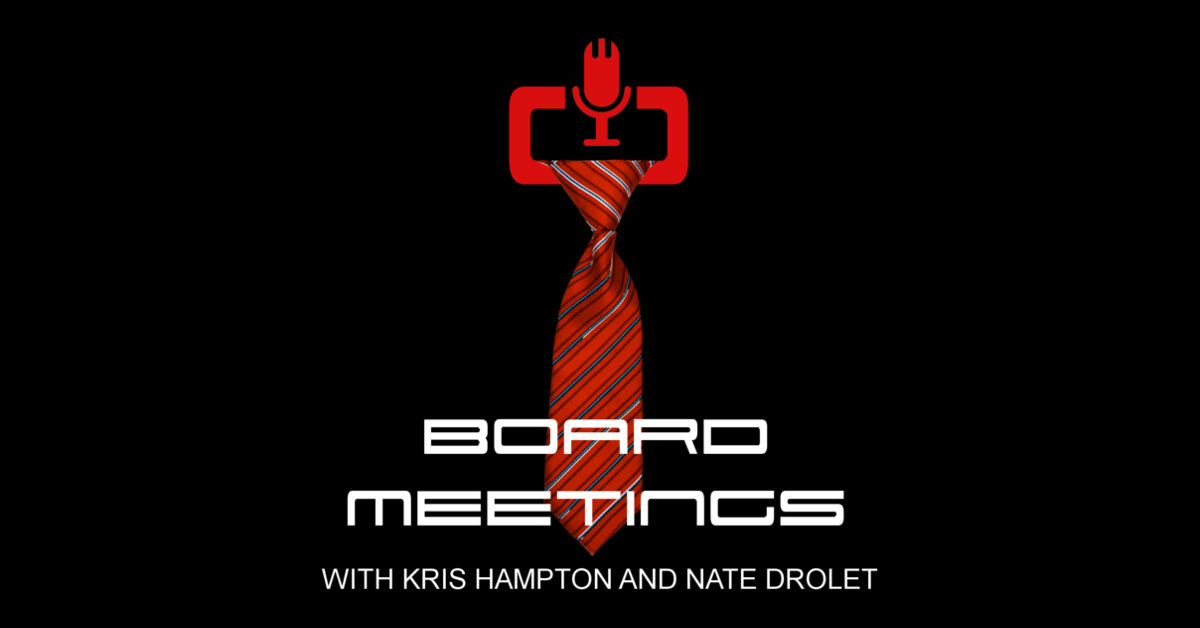




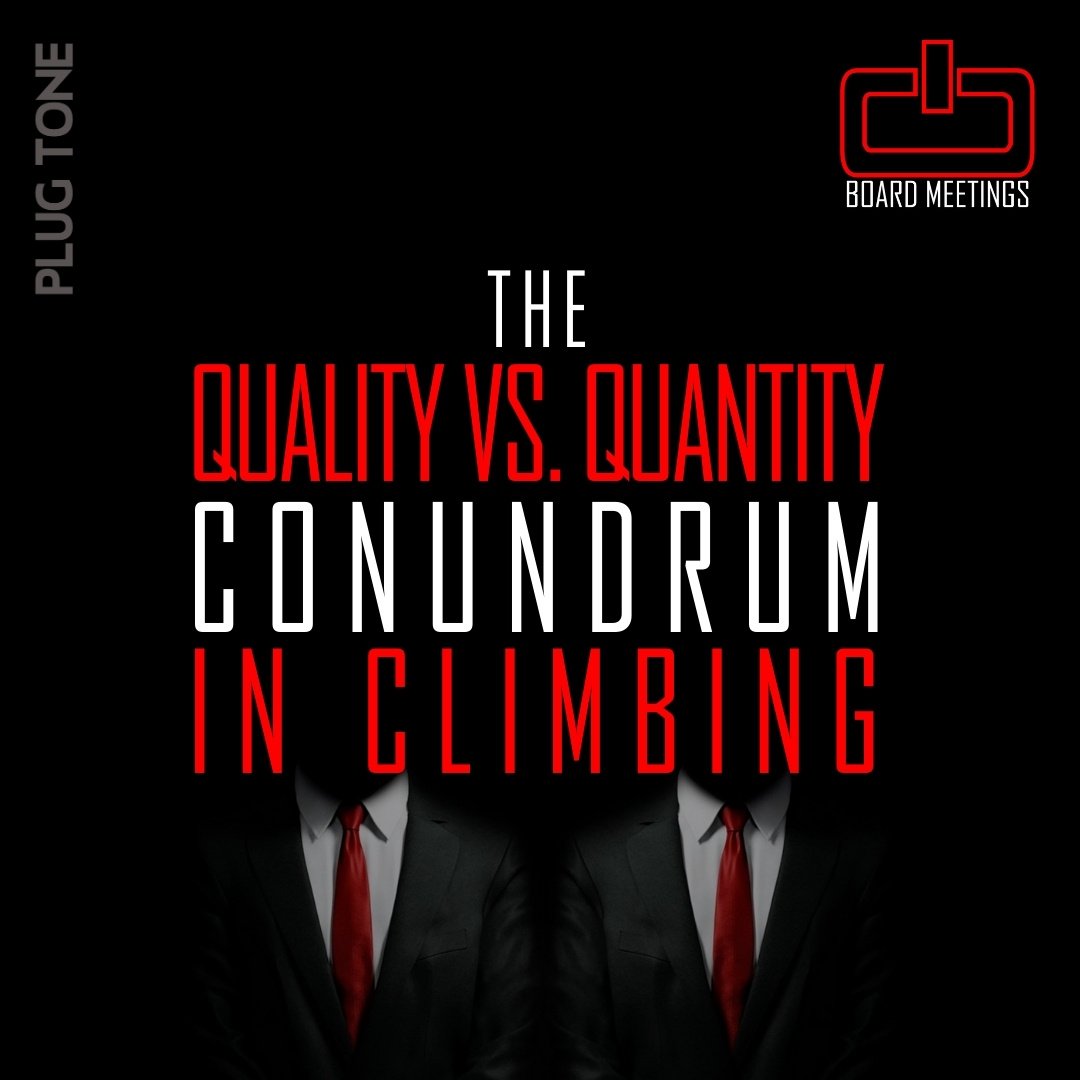

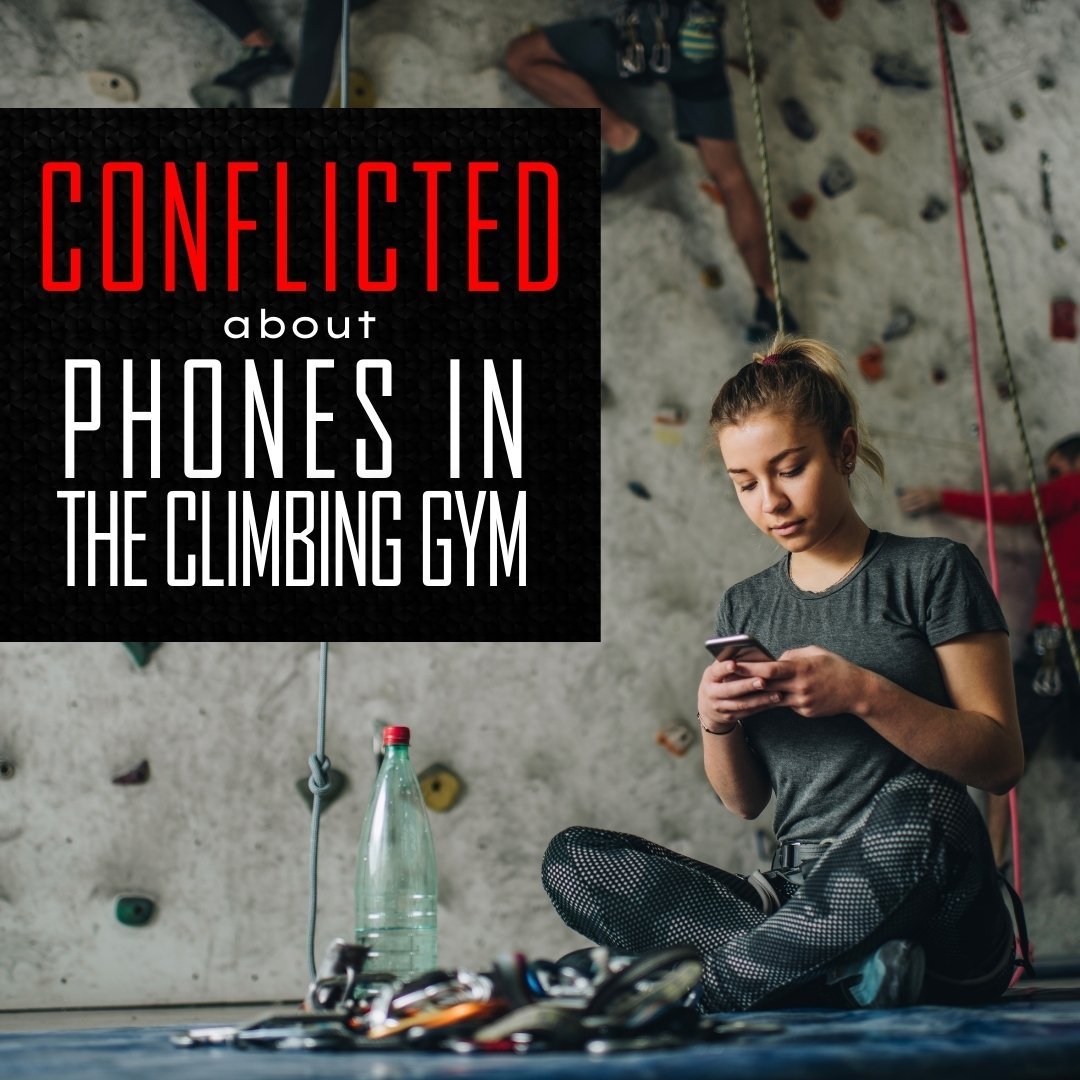
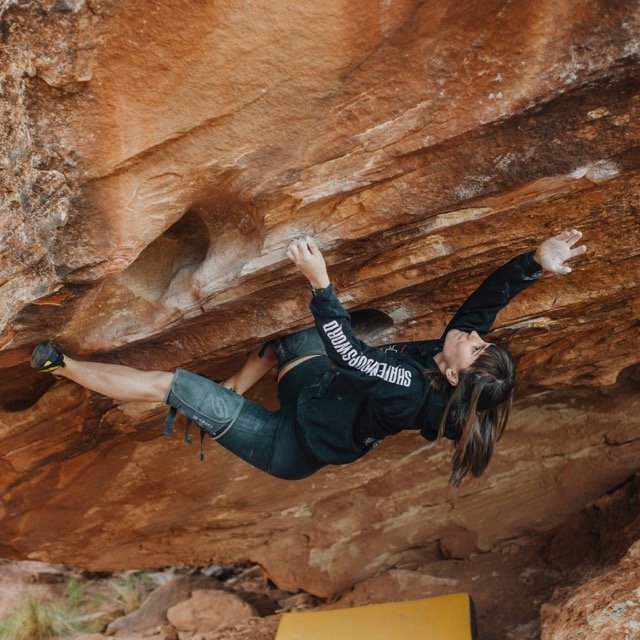

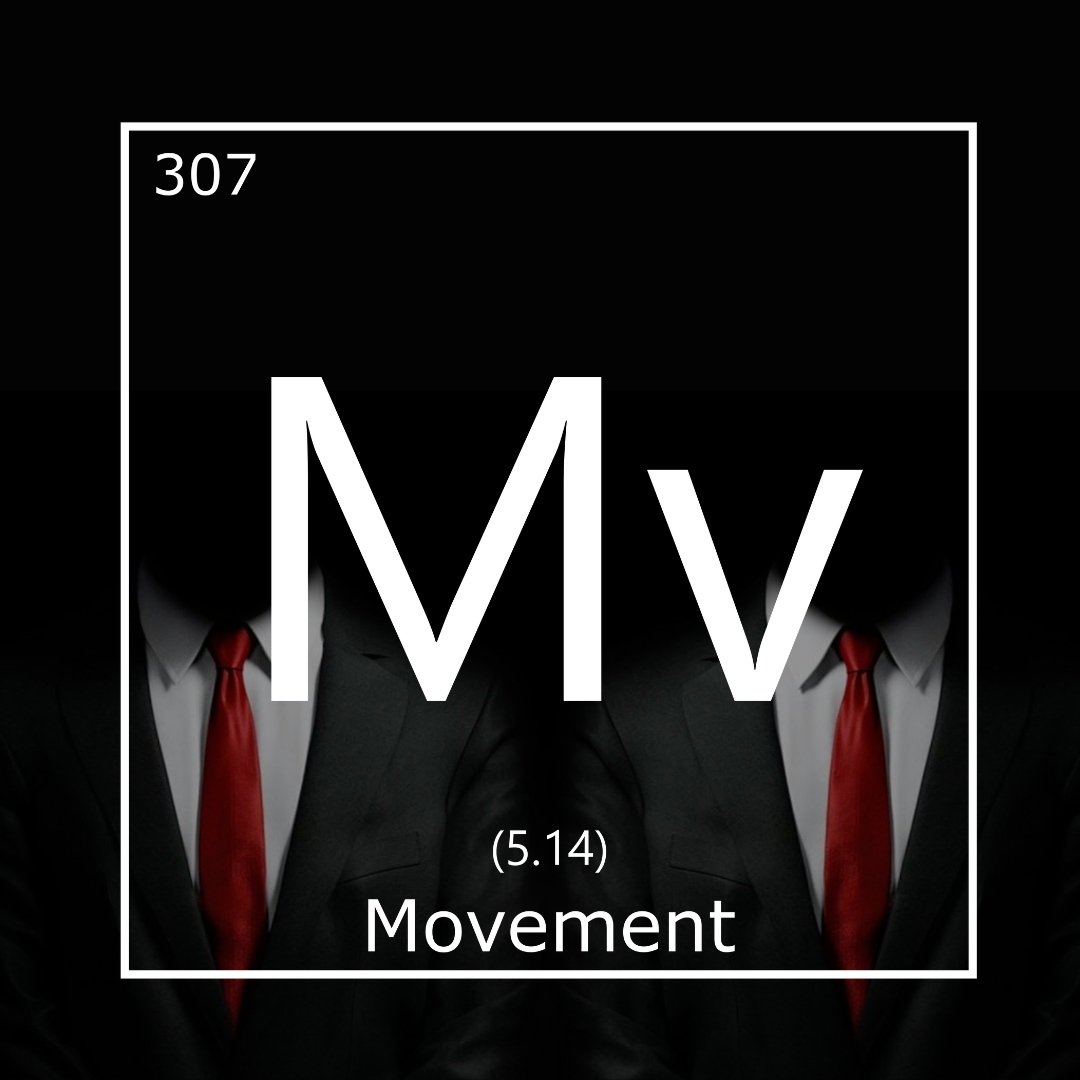
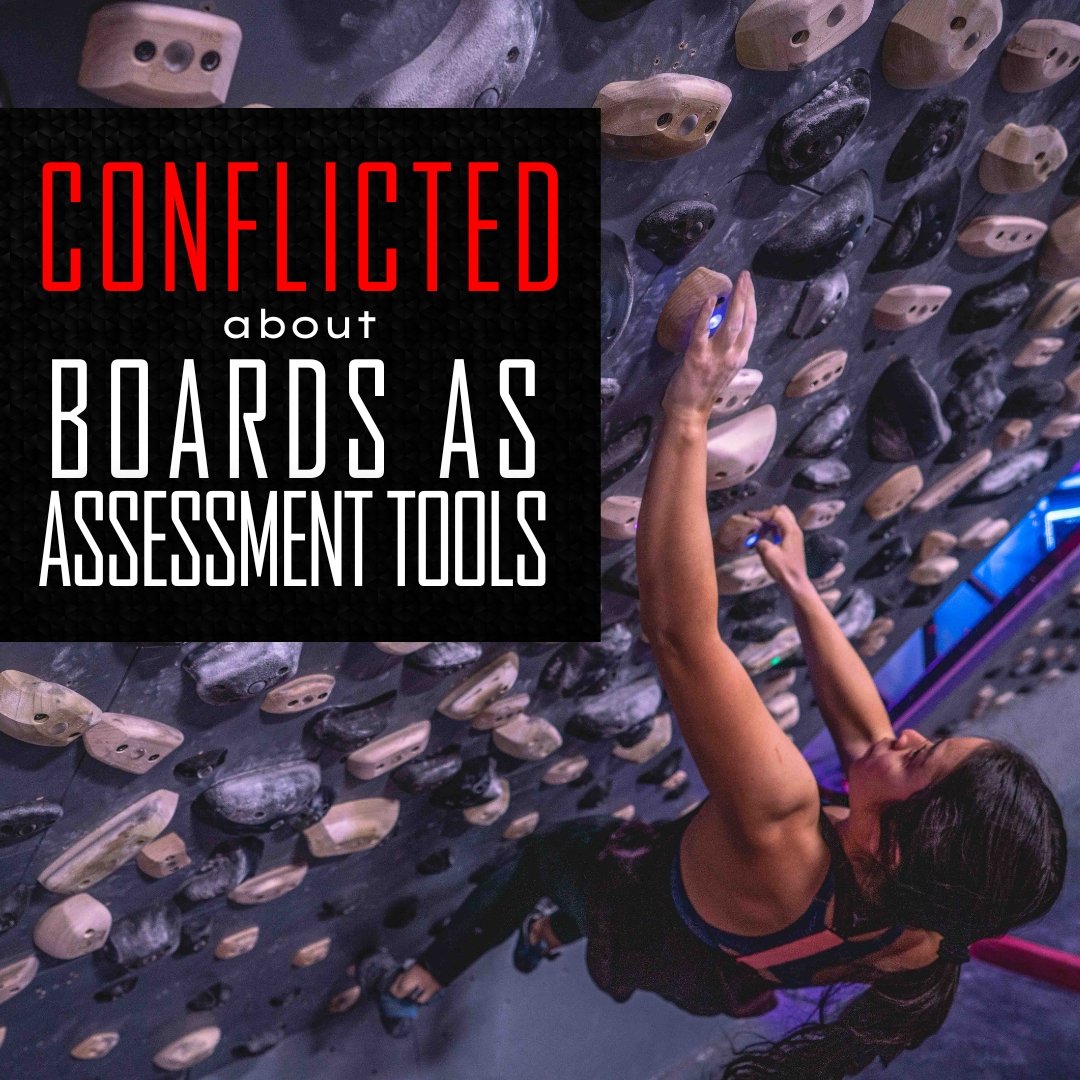
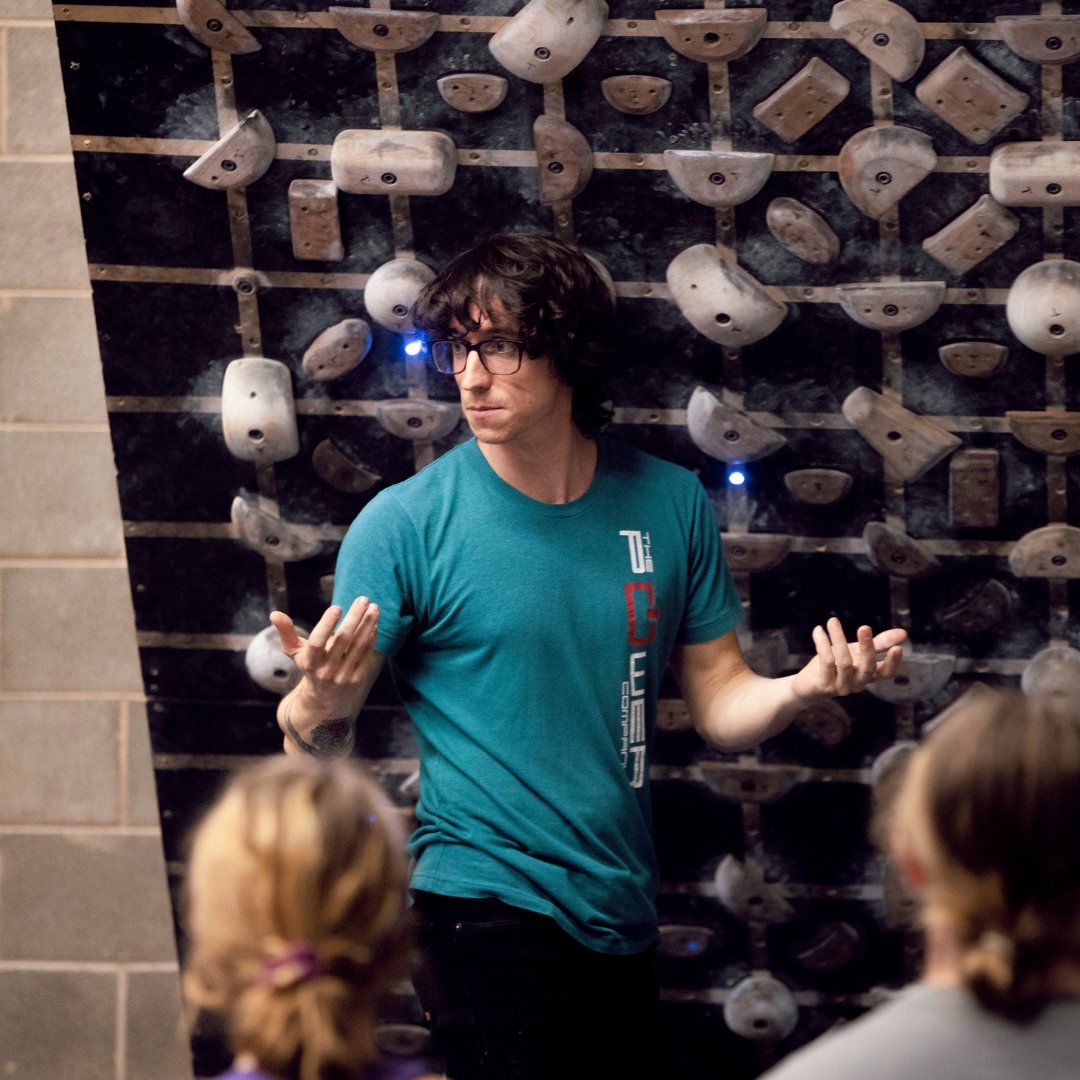
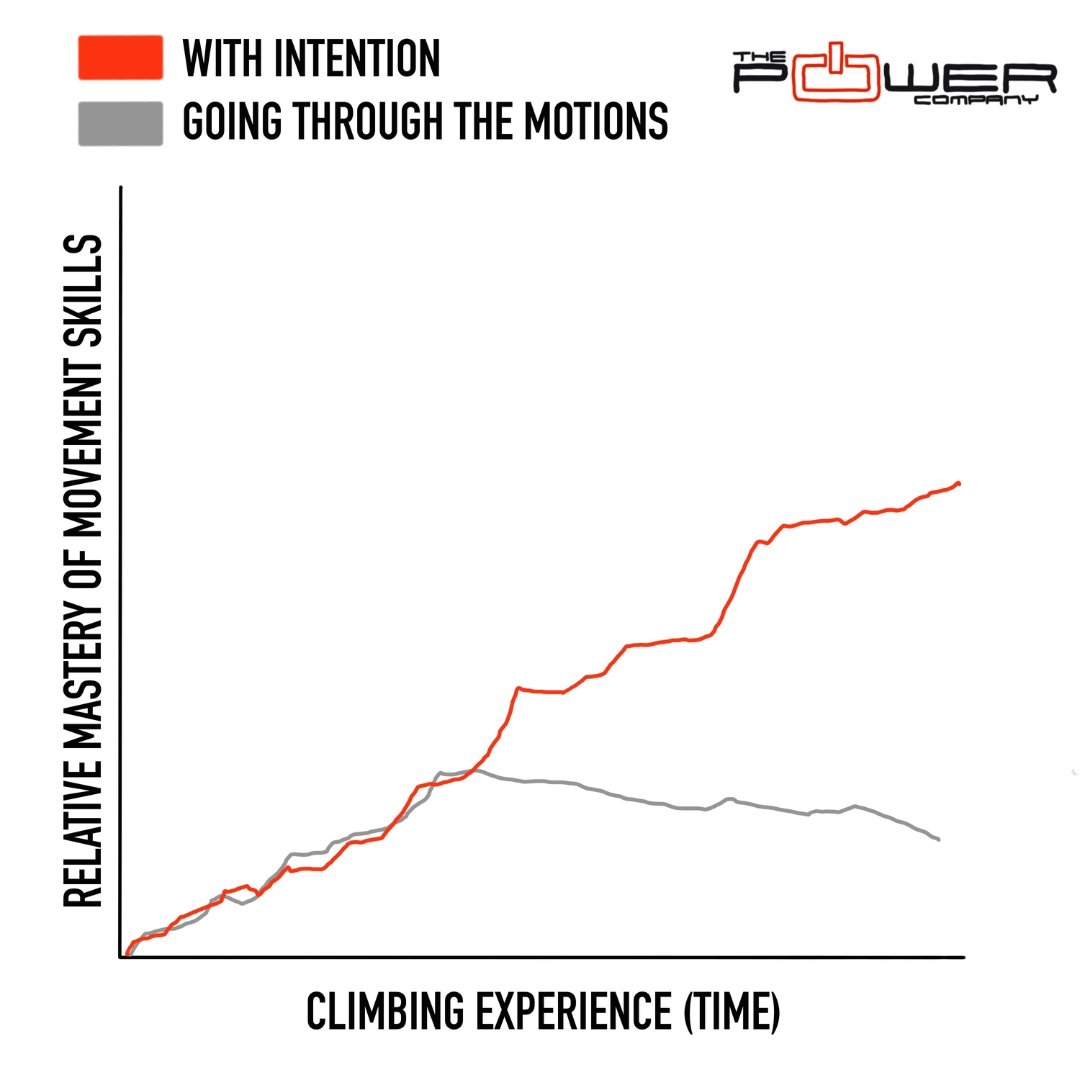




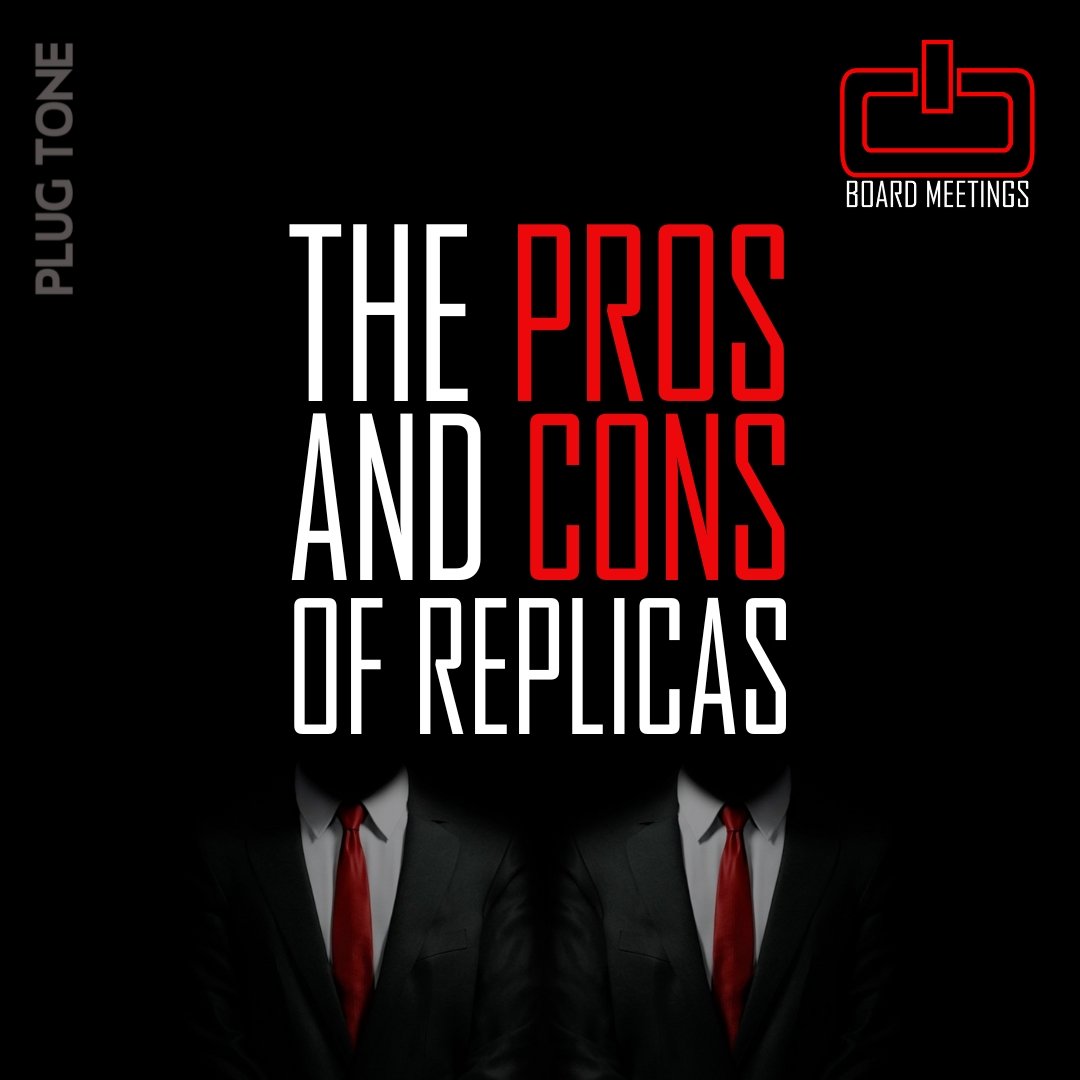


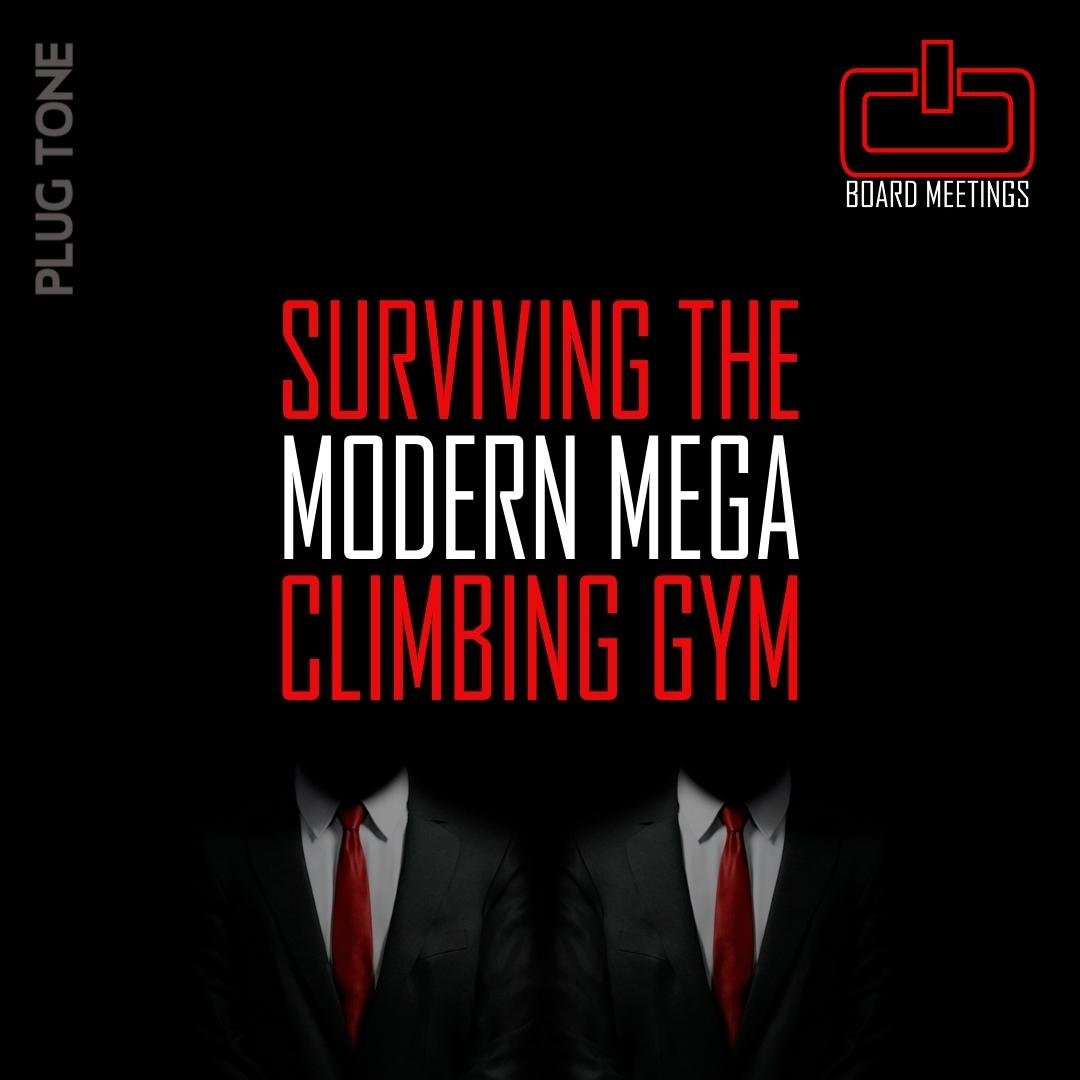


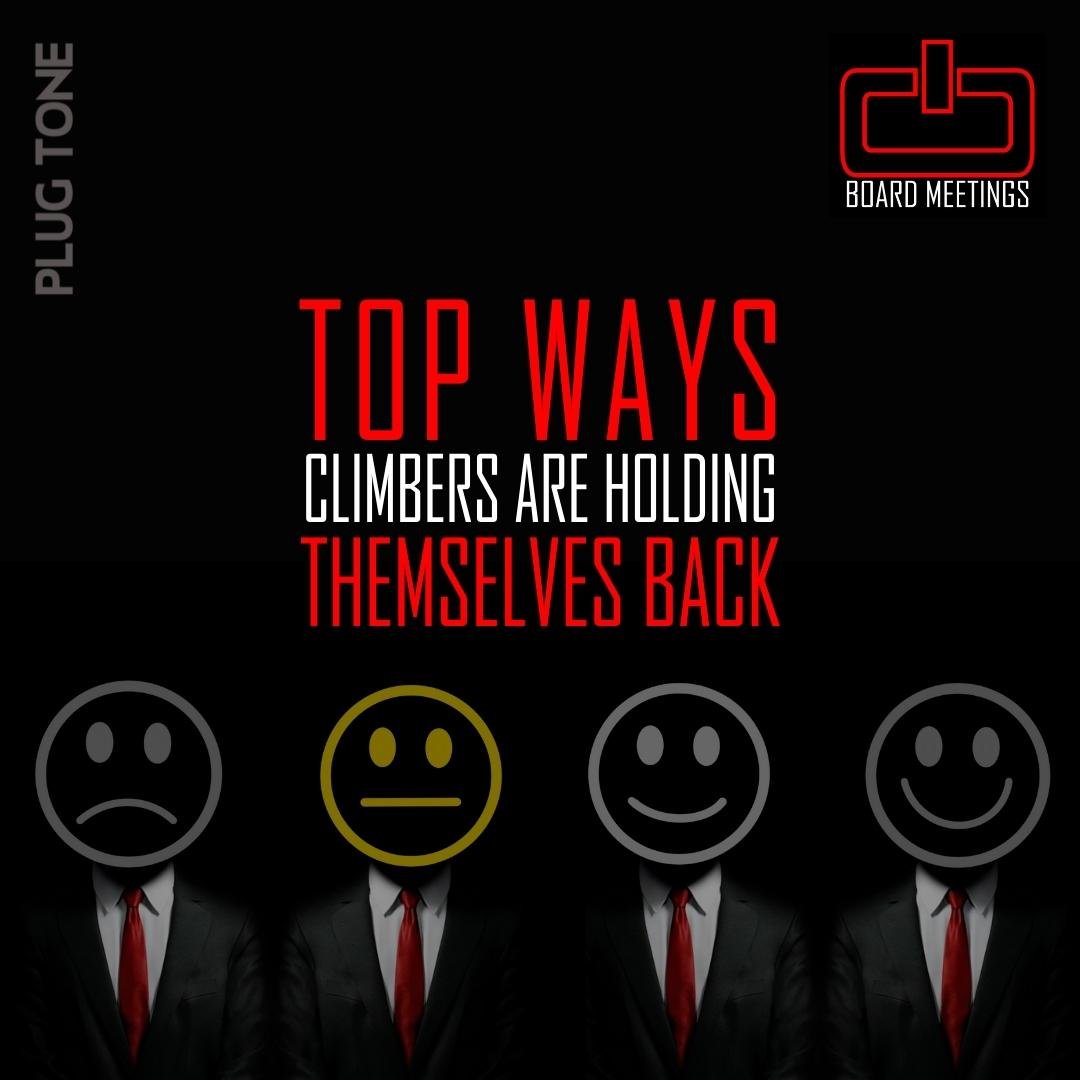



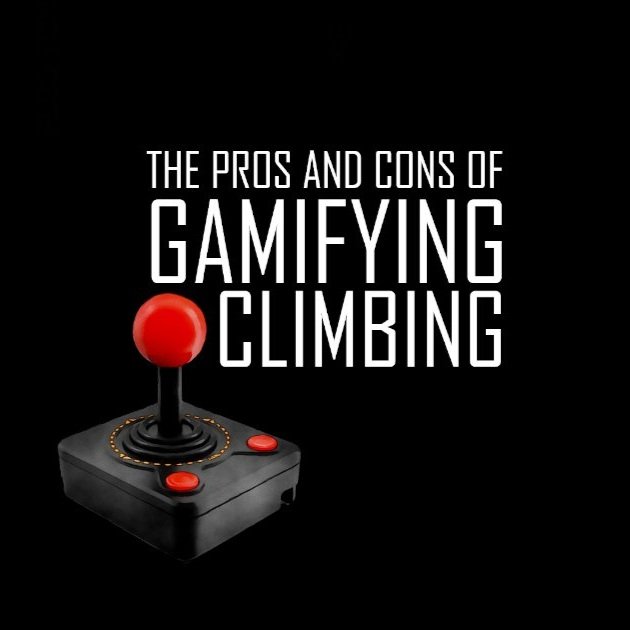



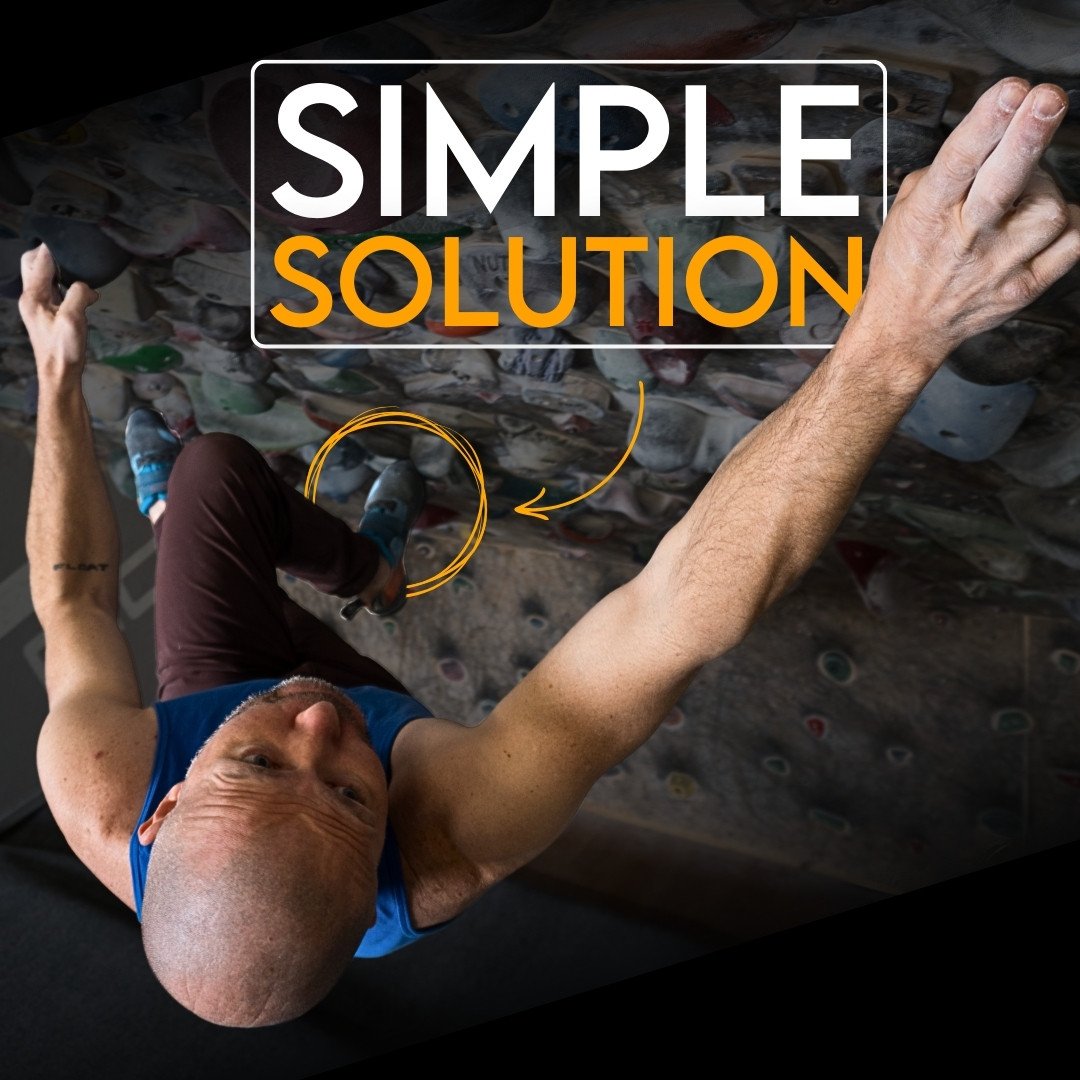


How do you know which is right for your situation?